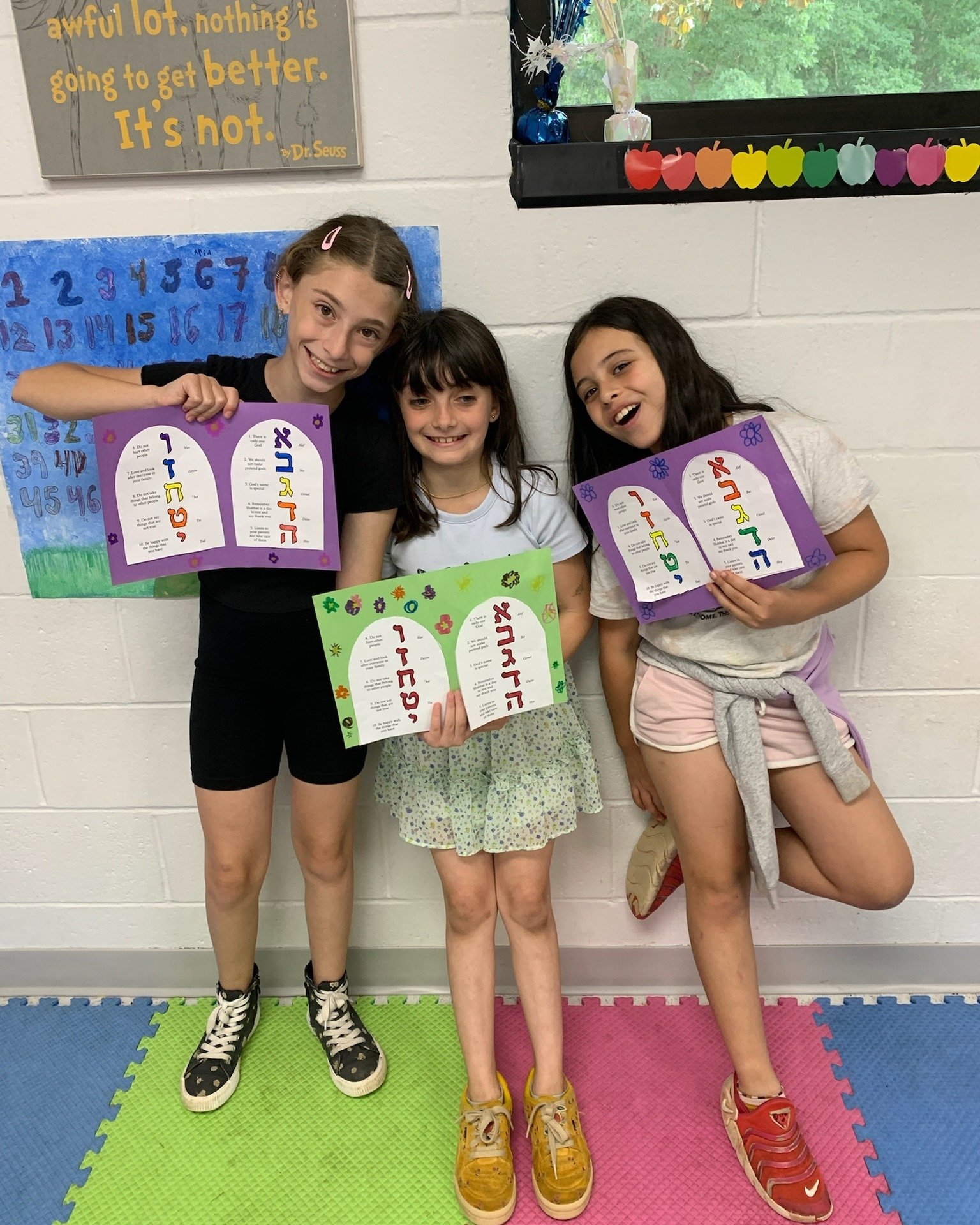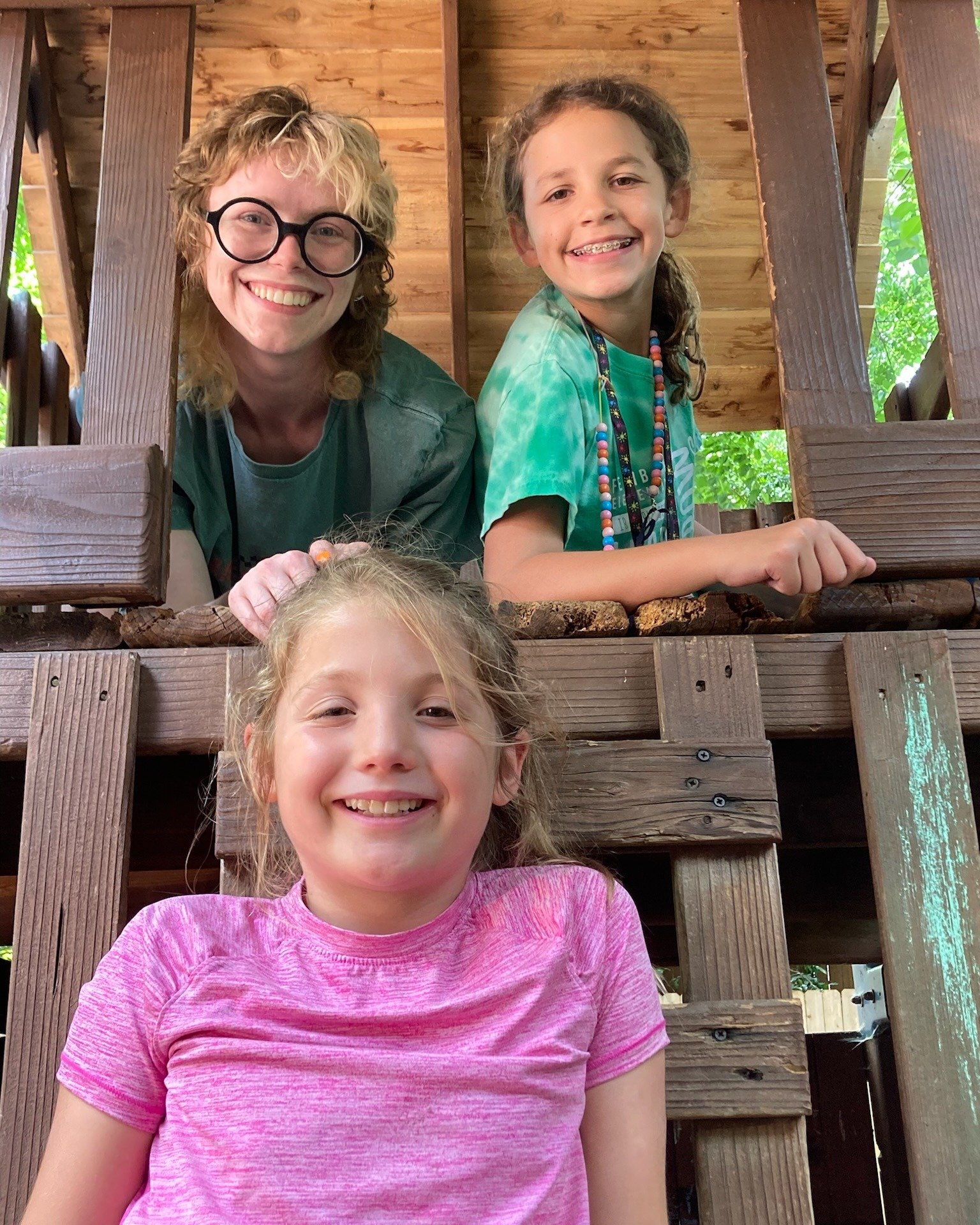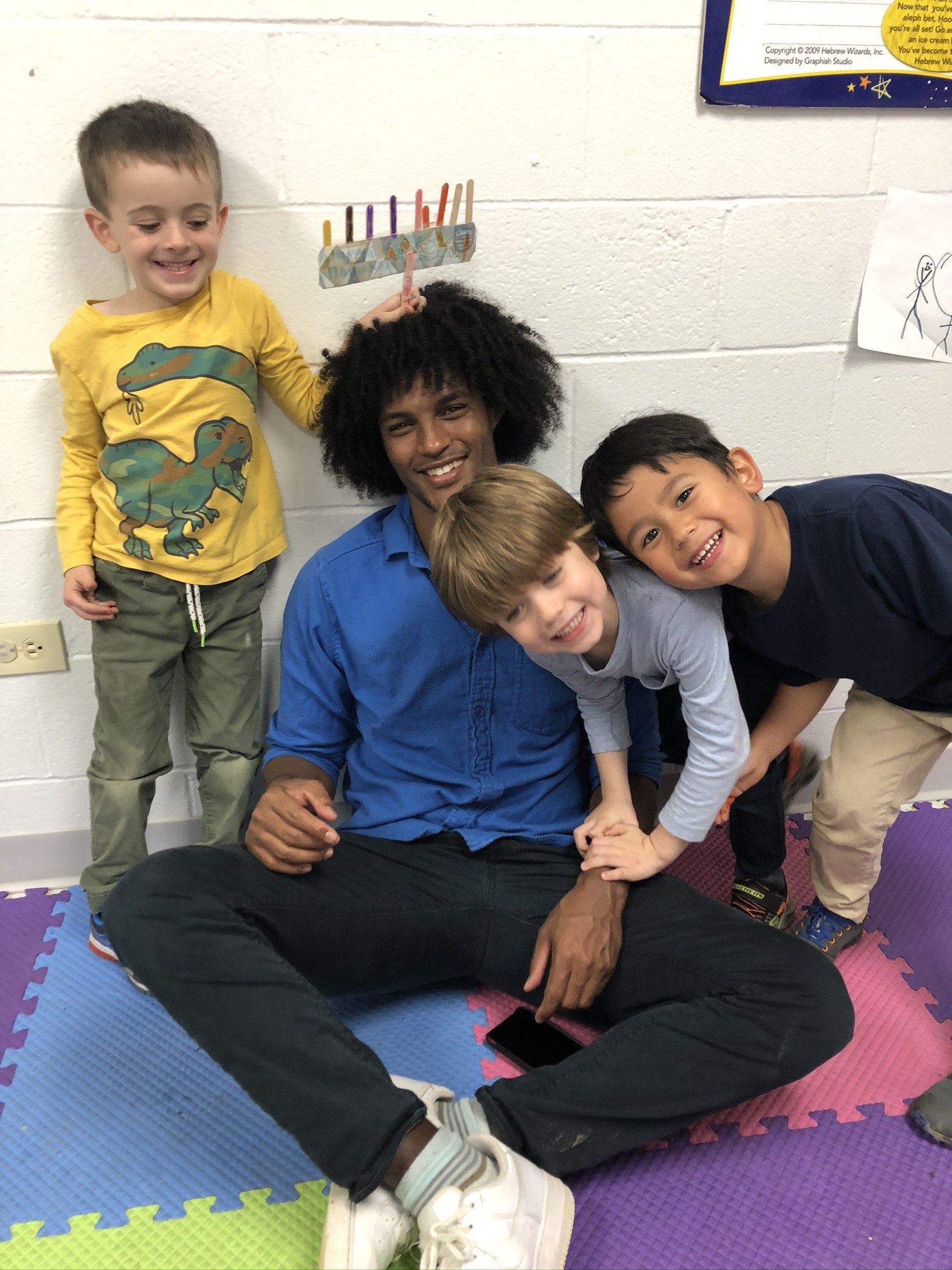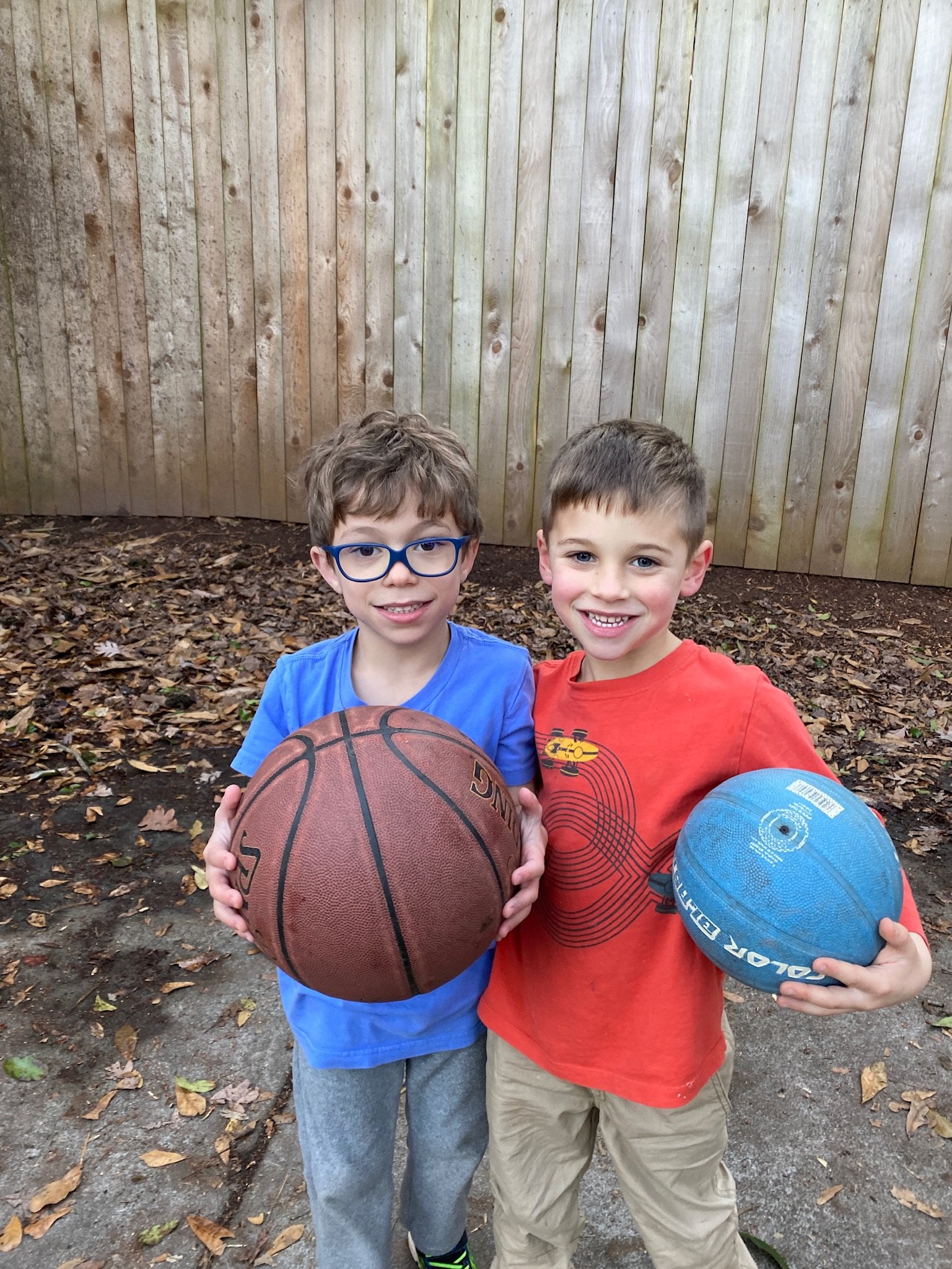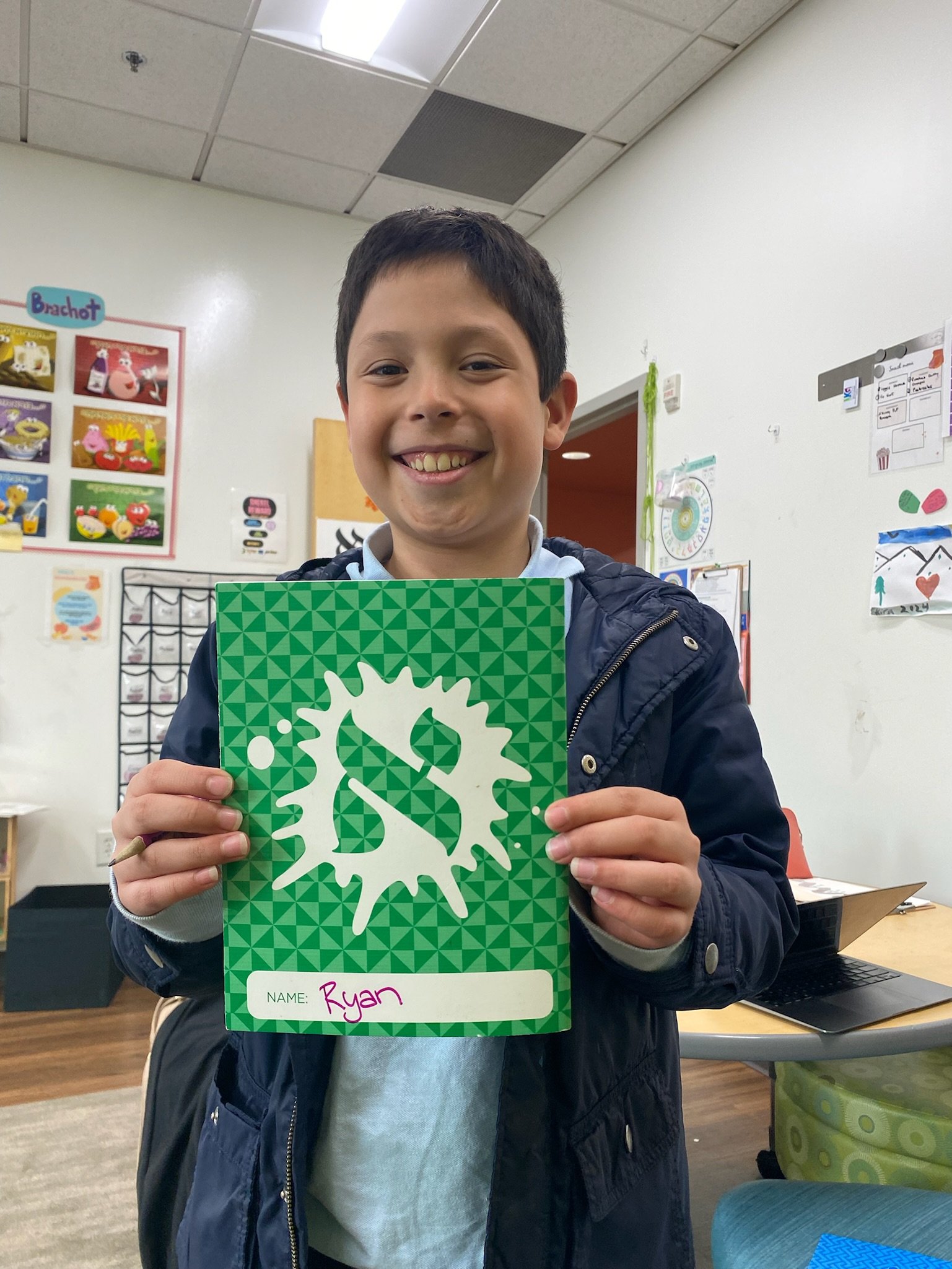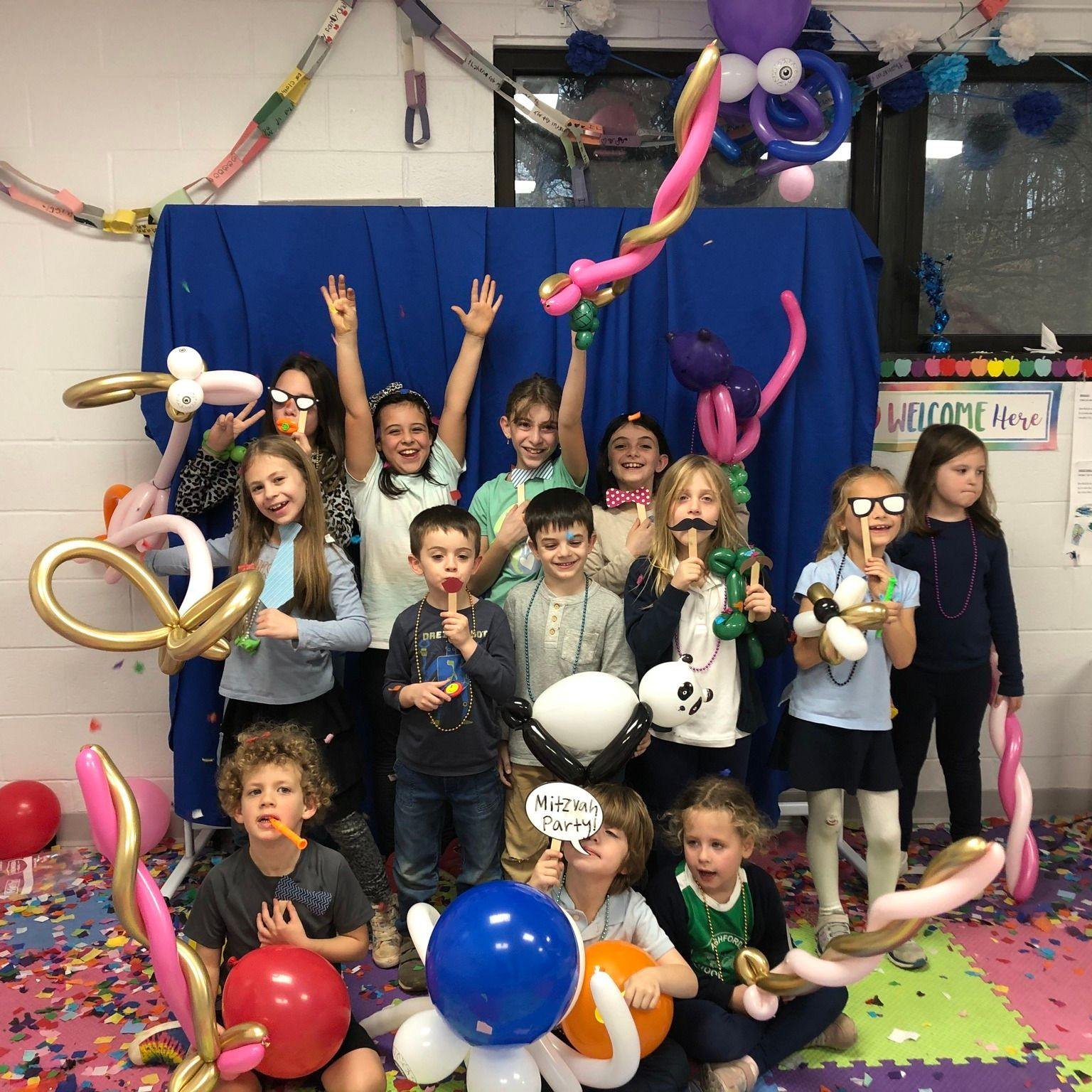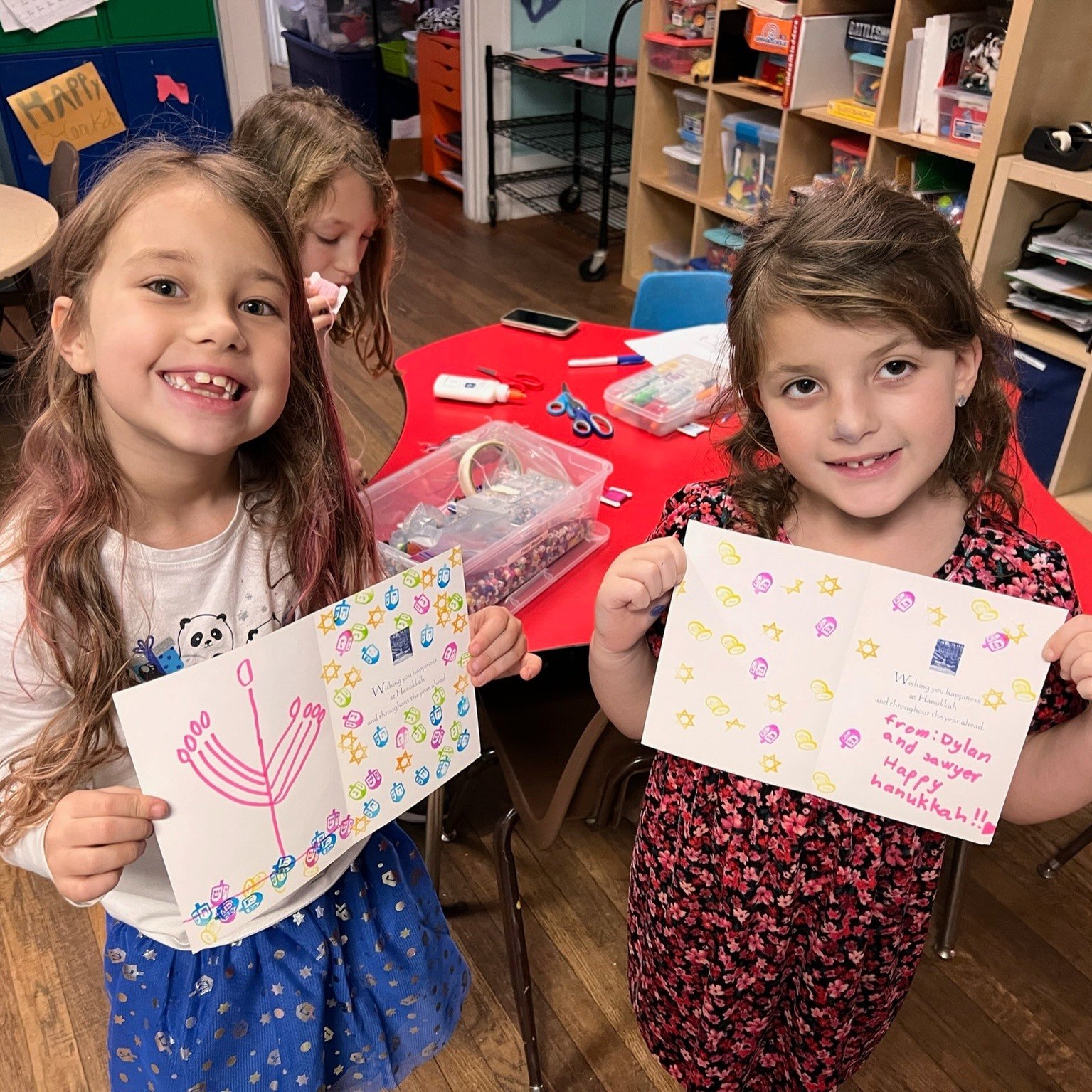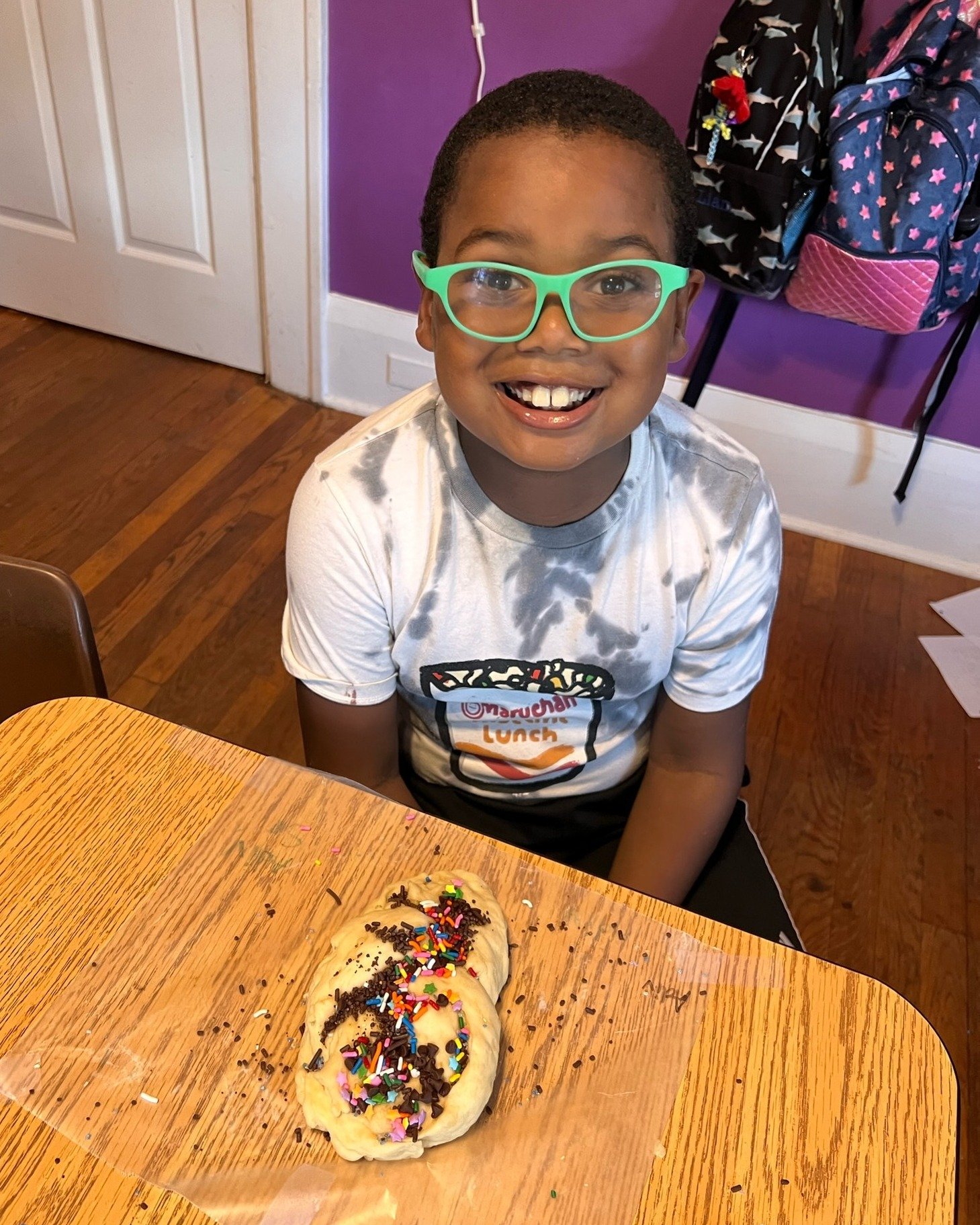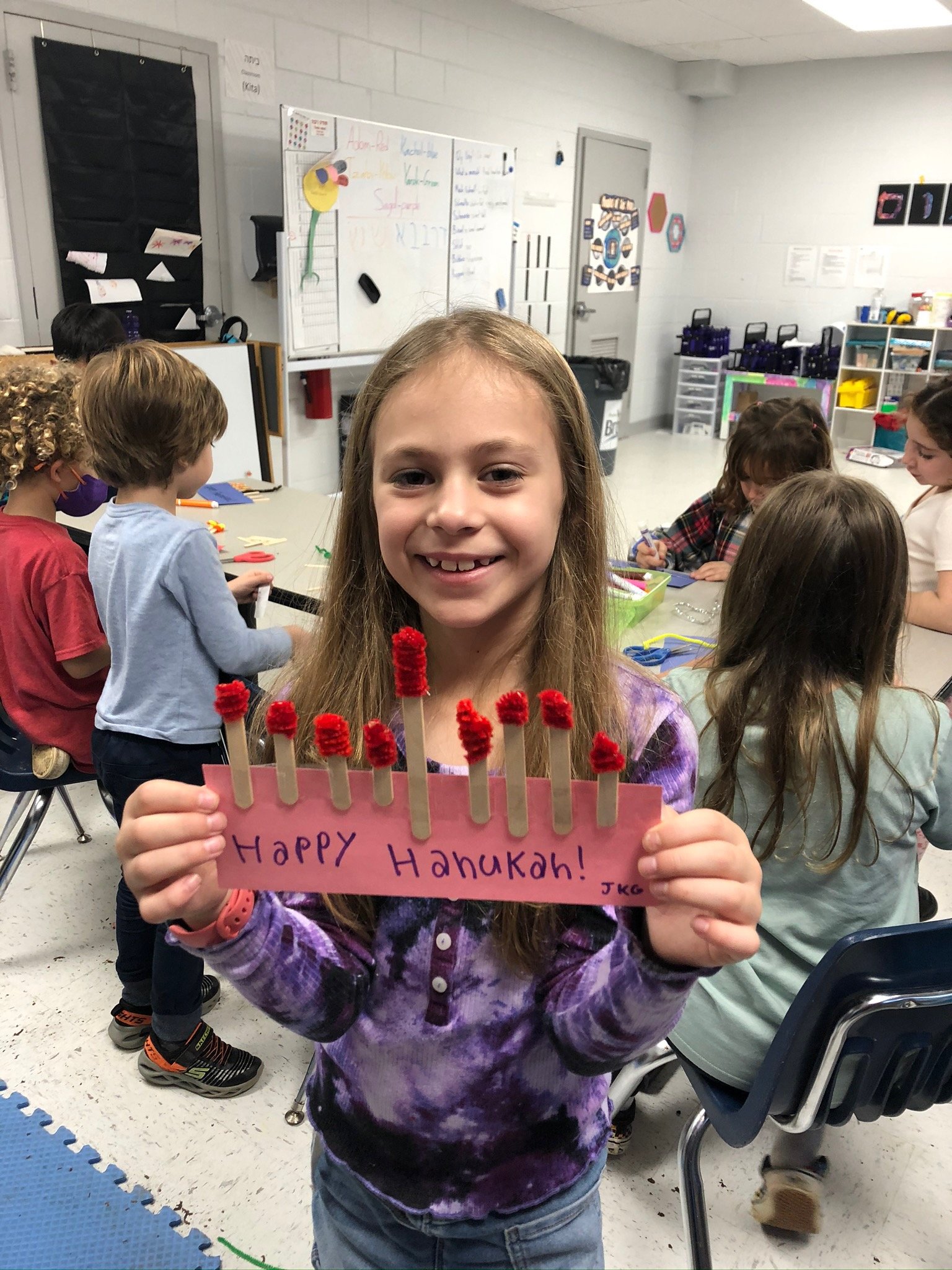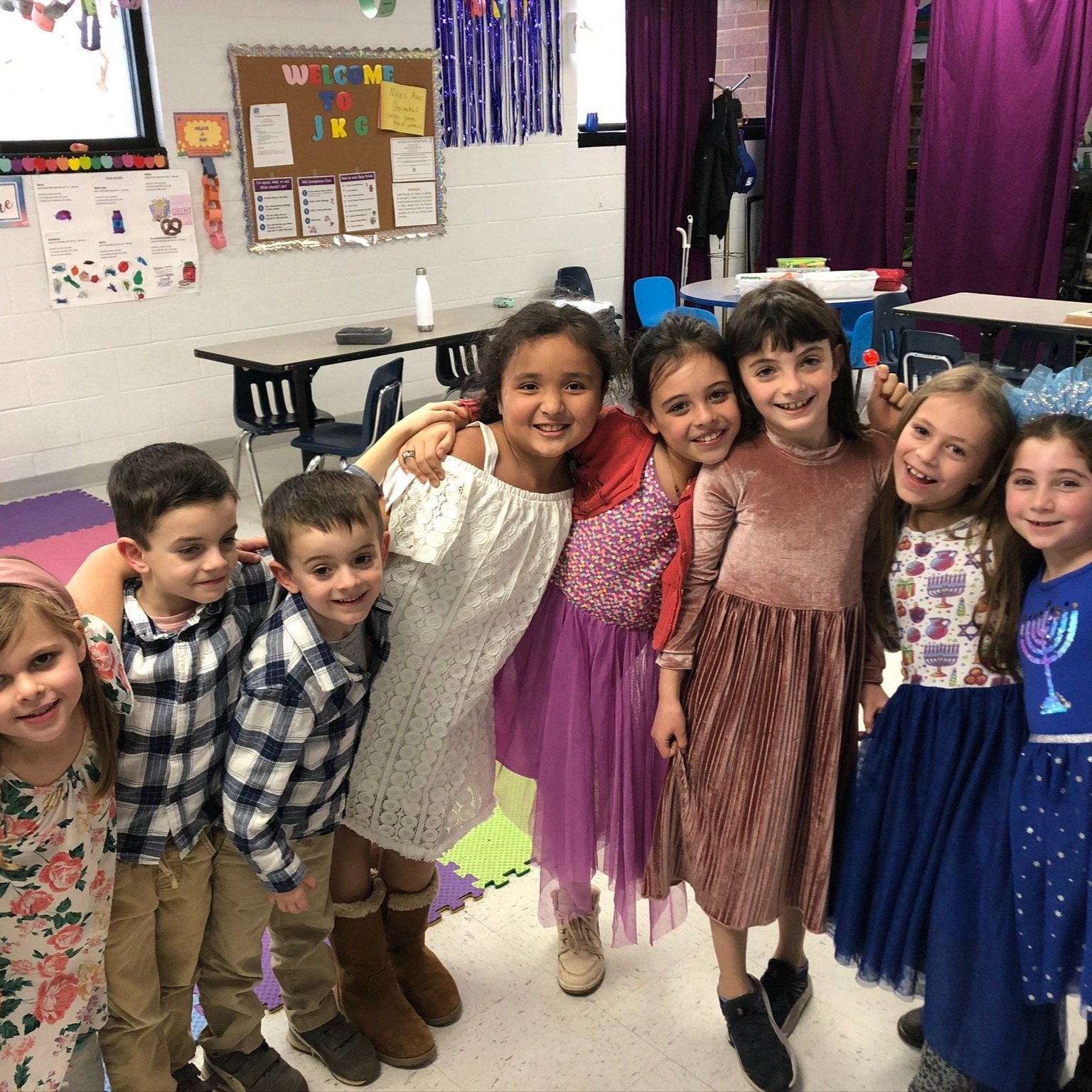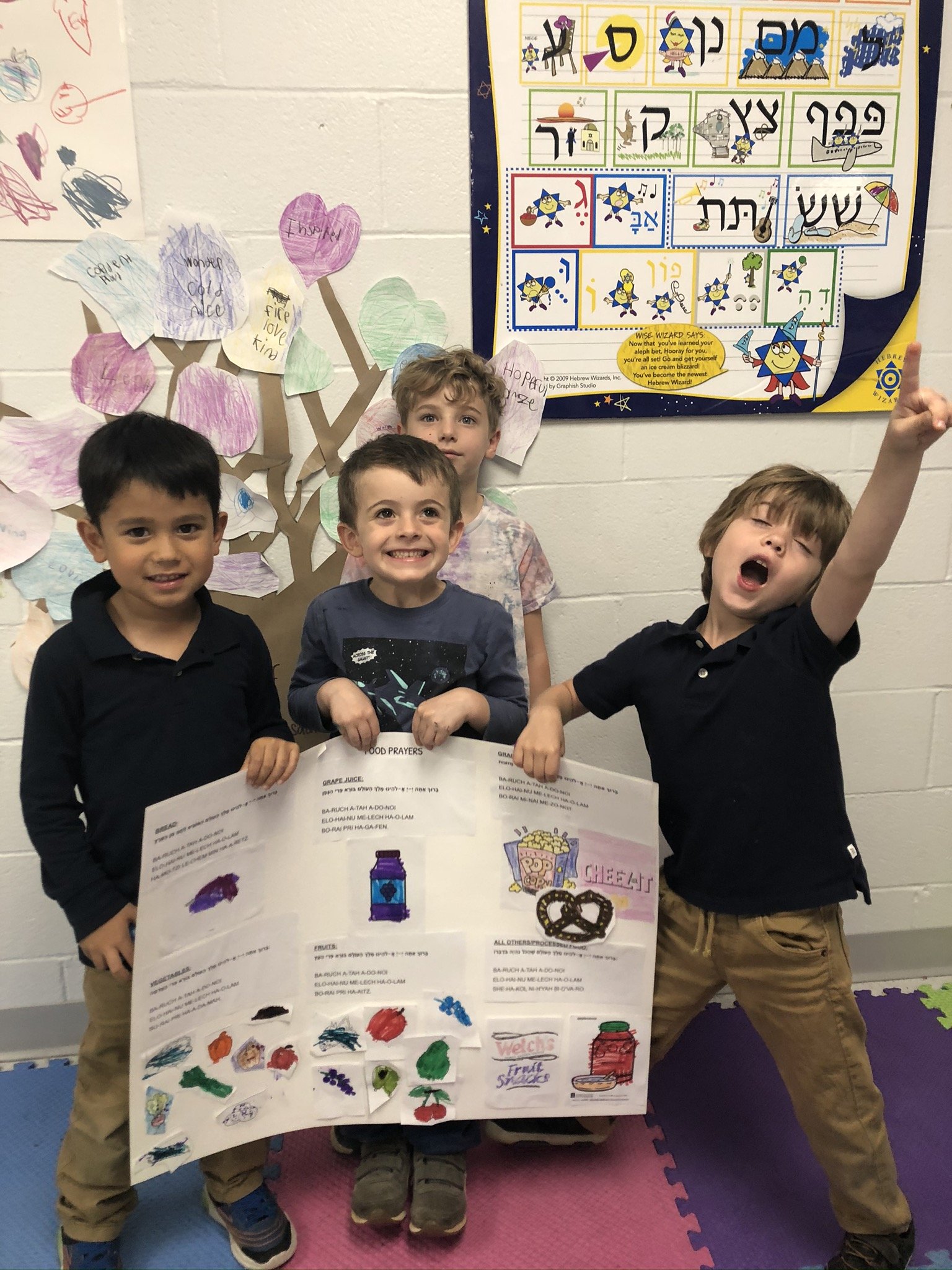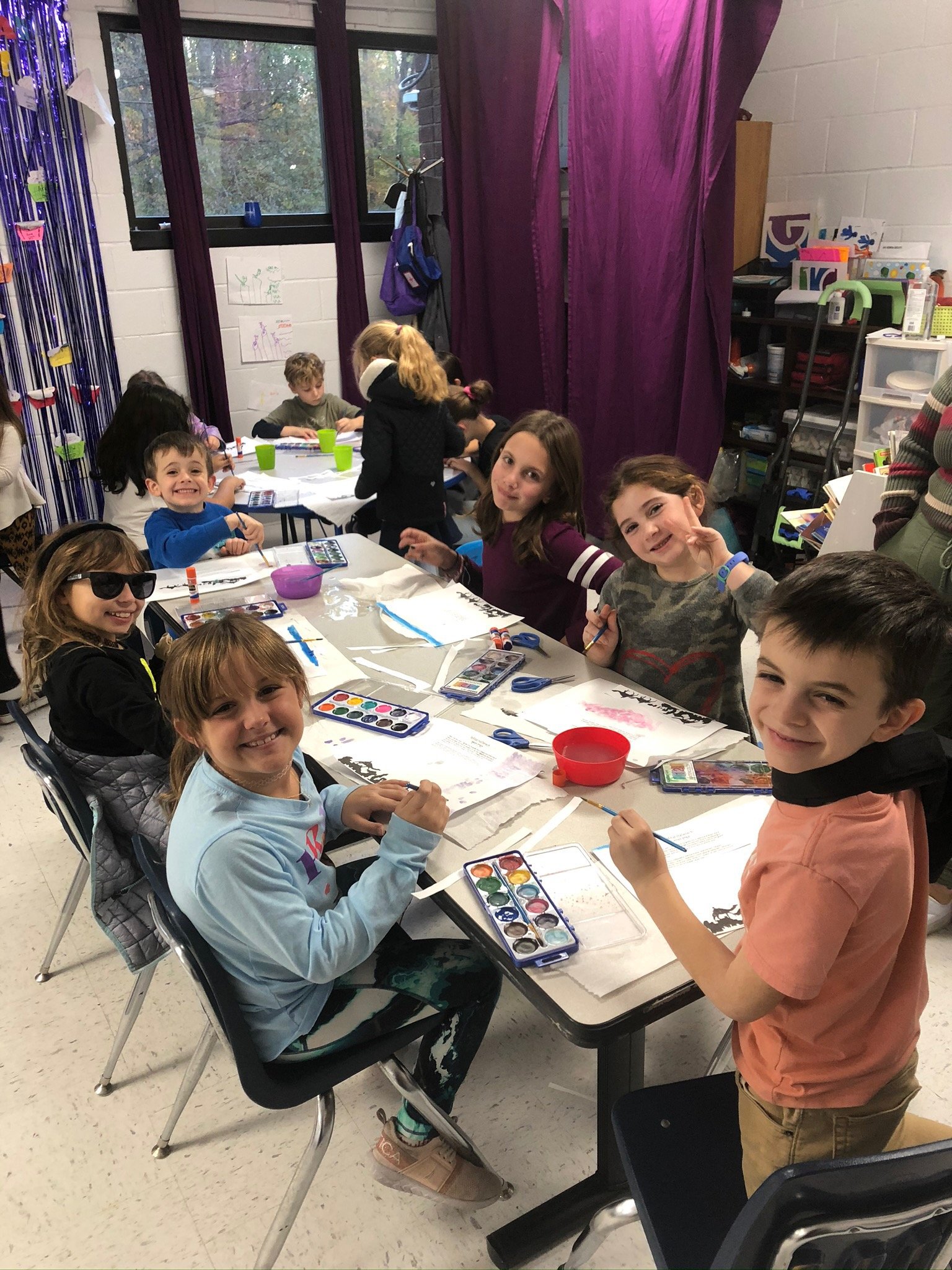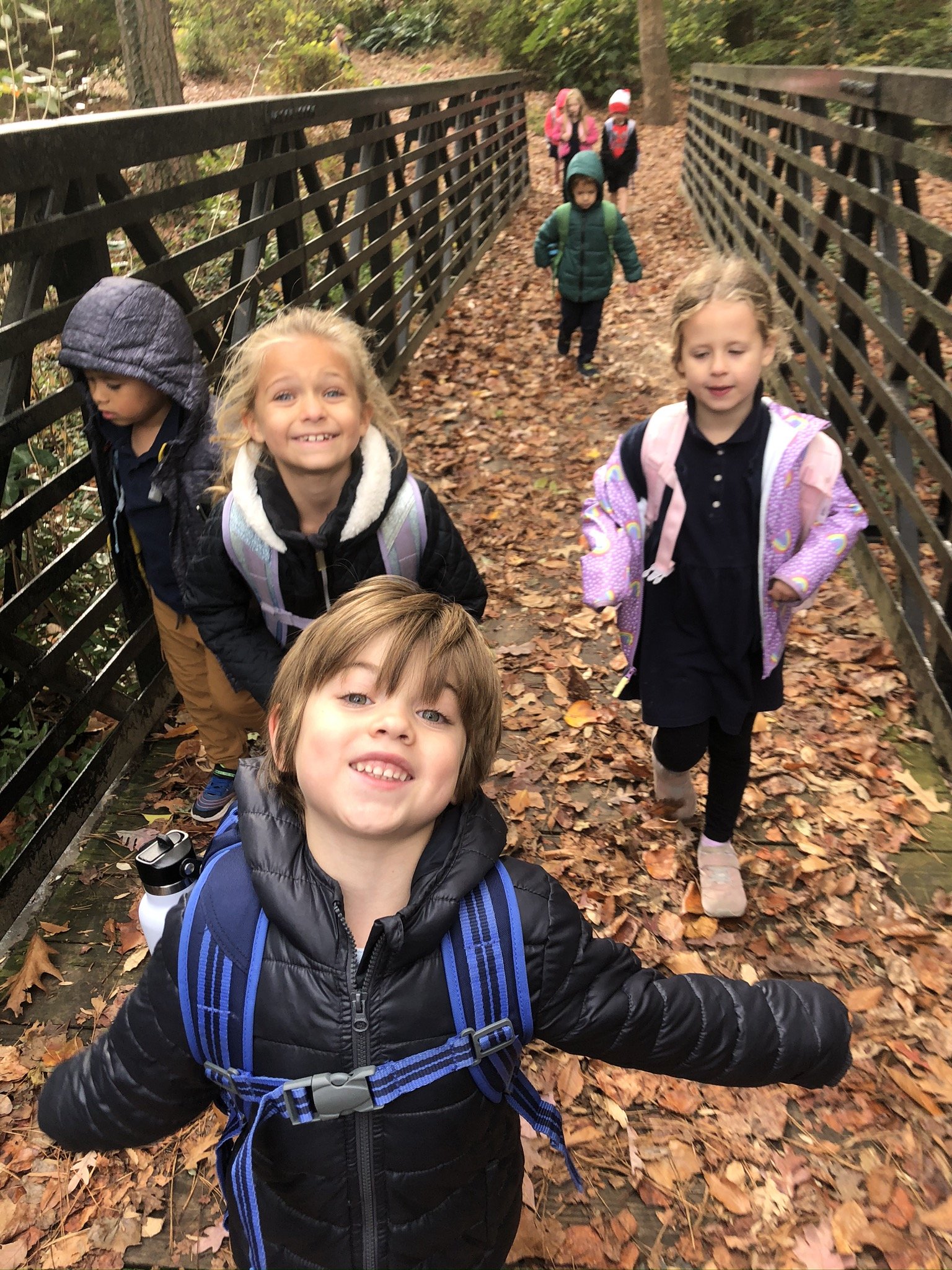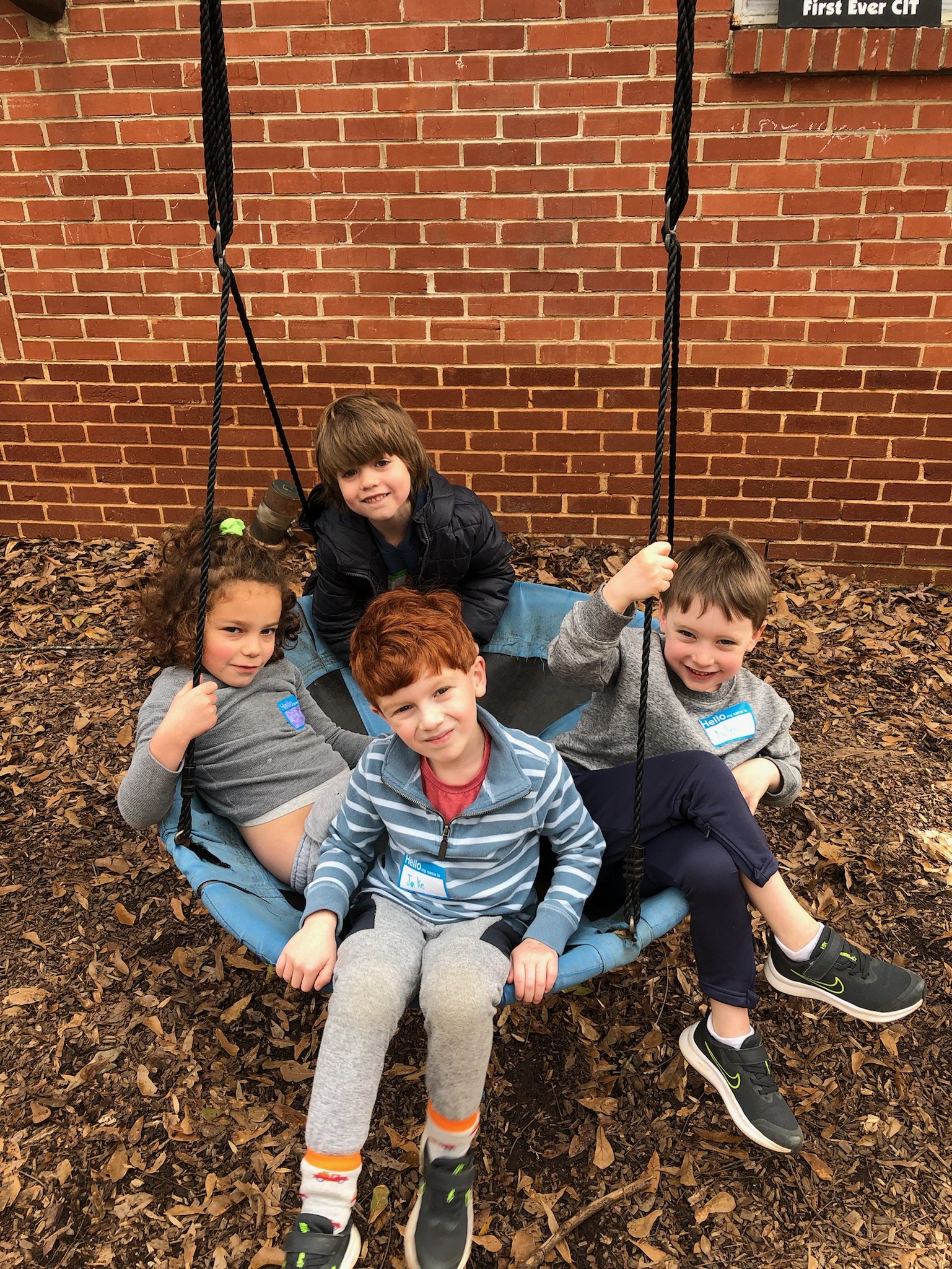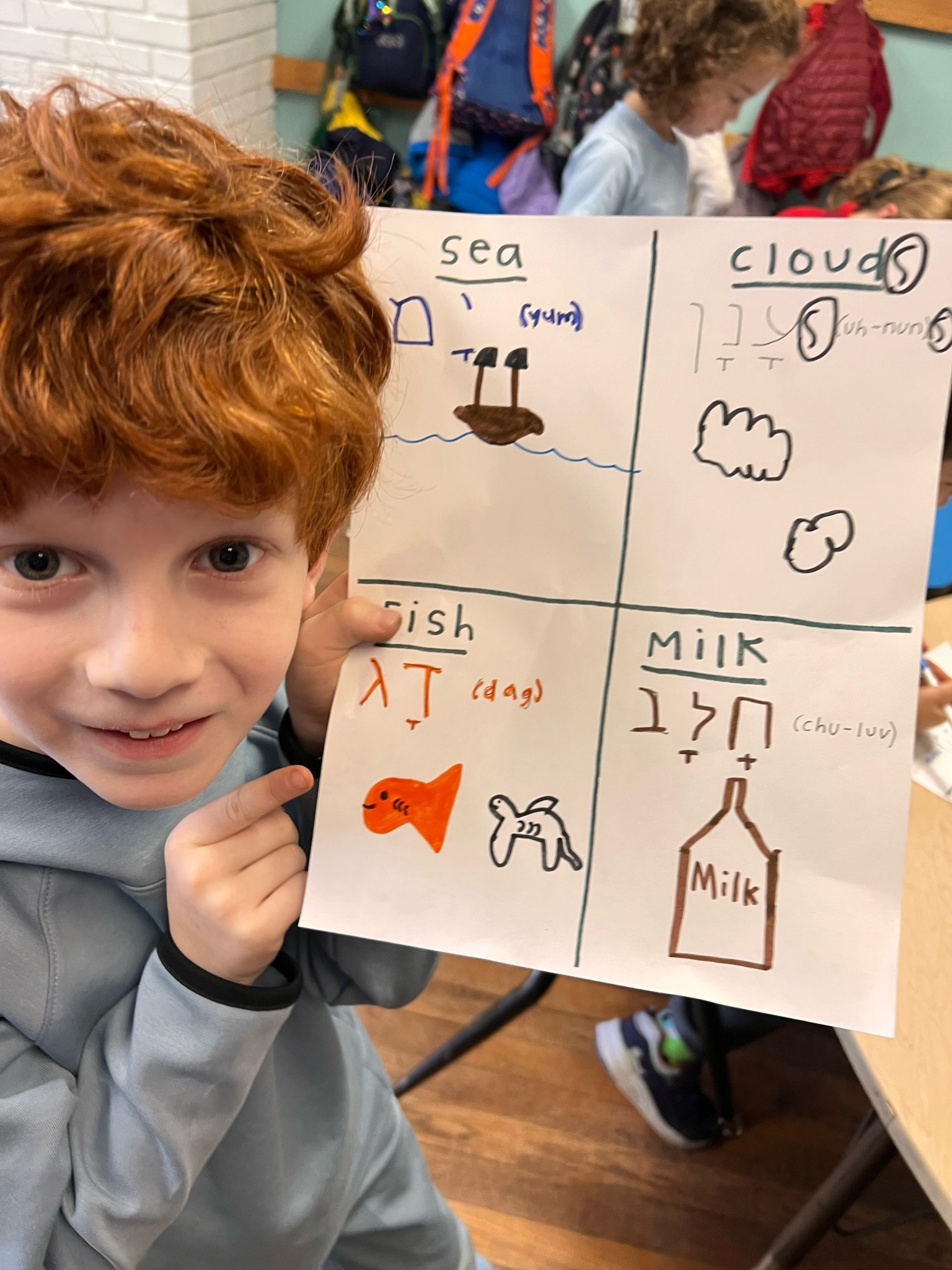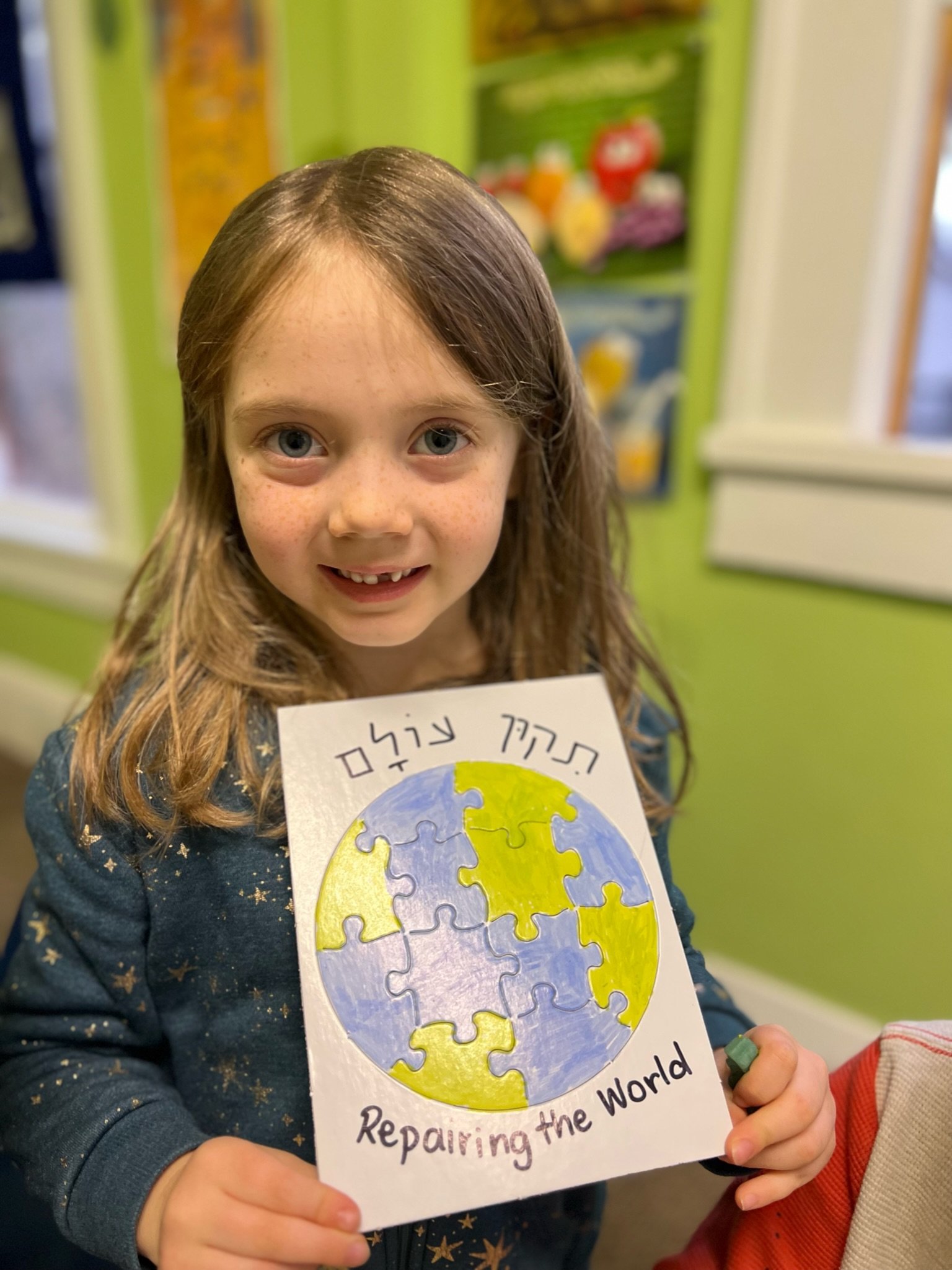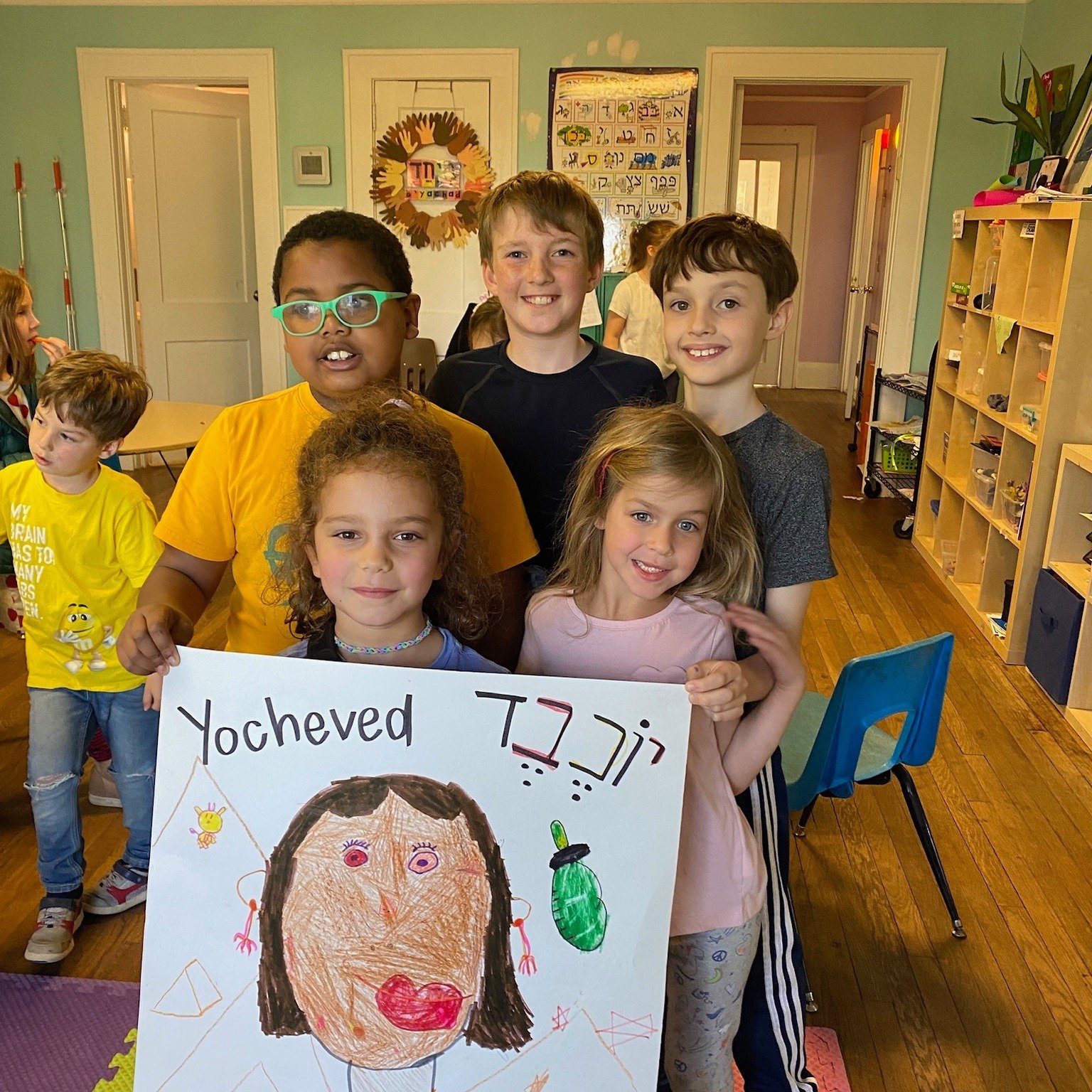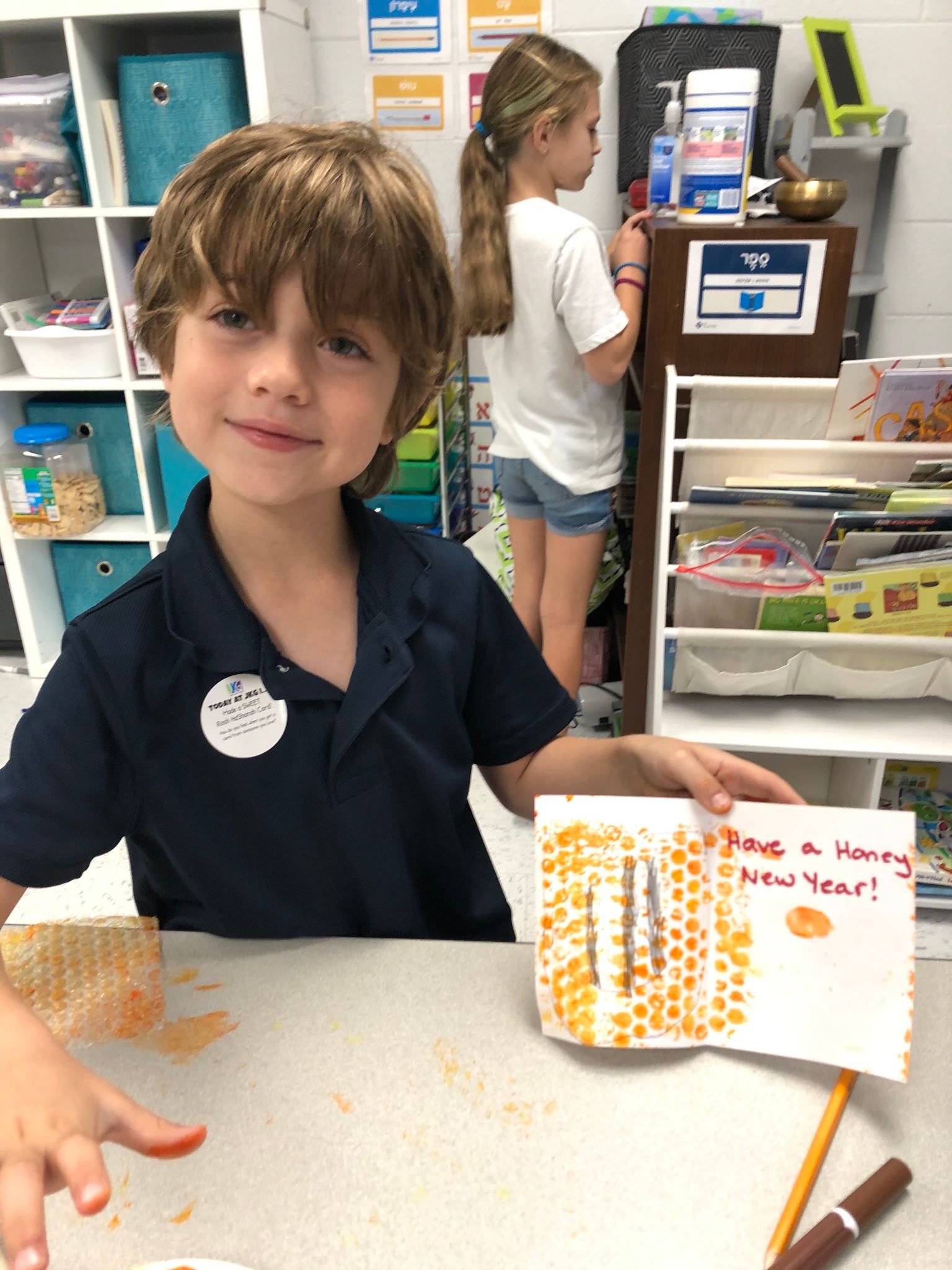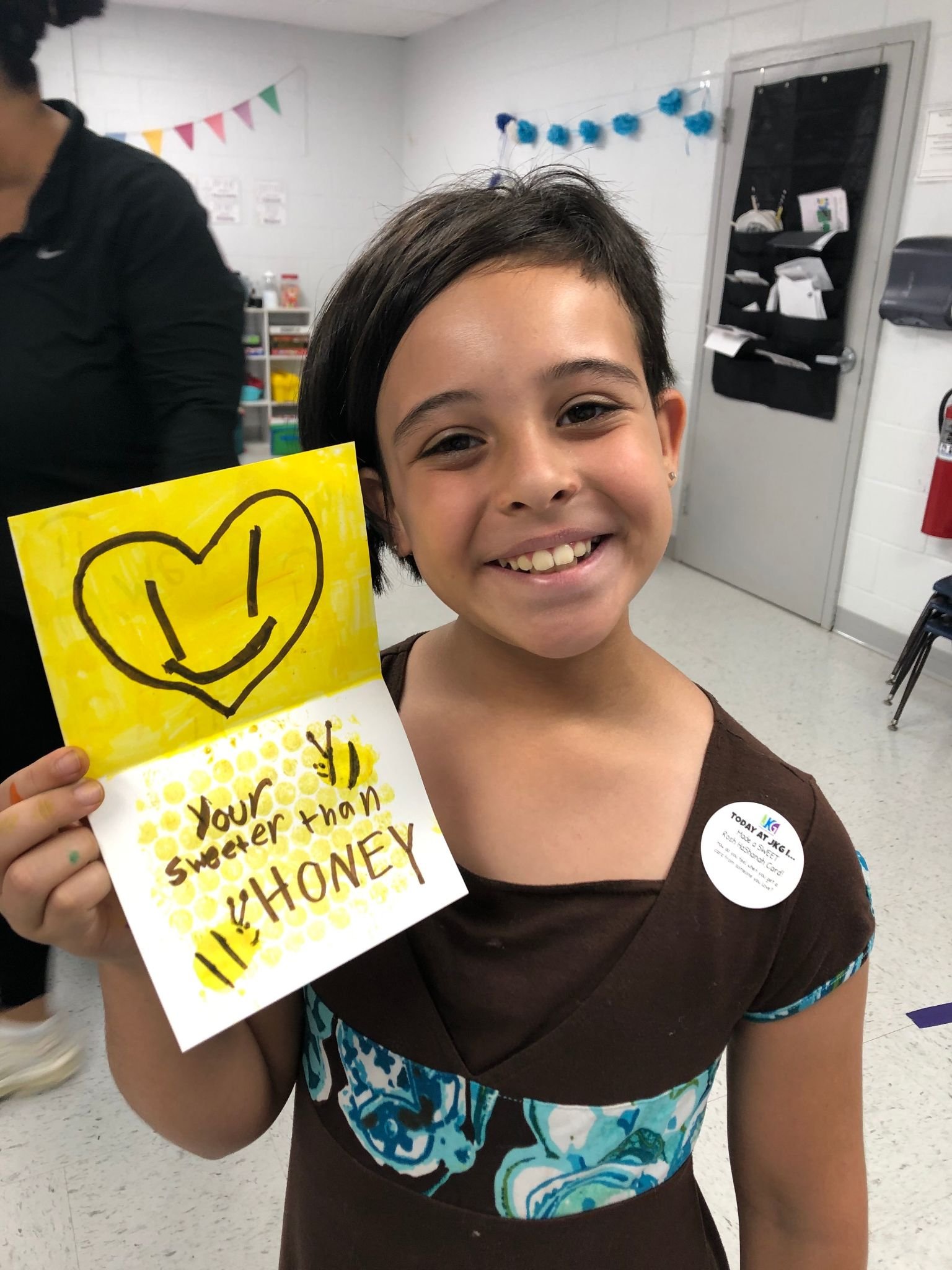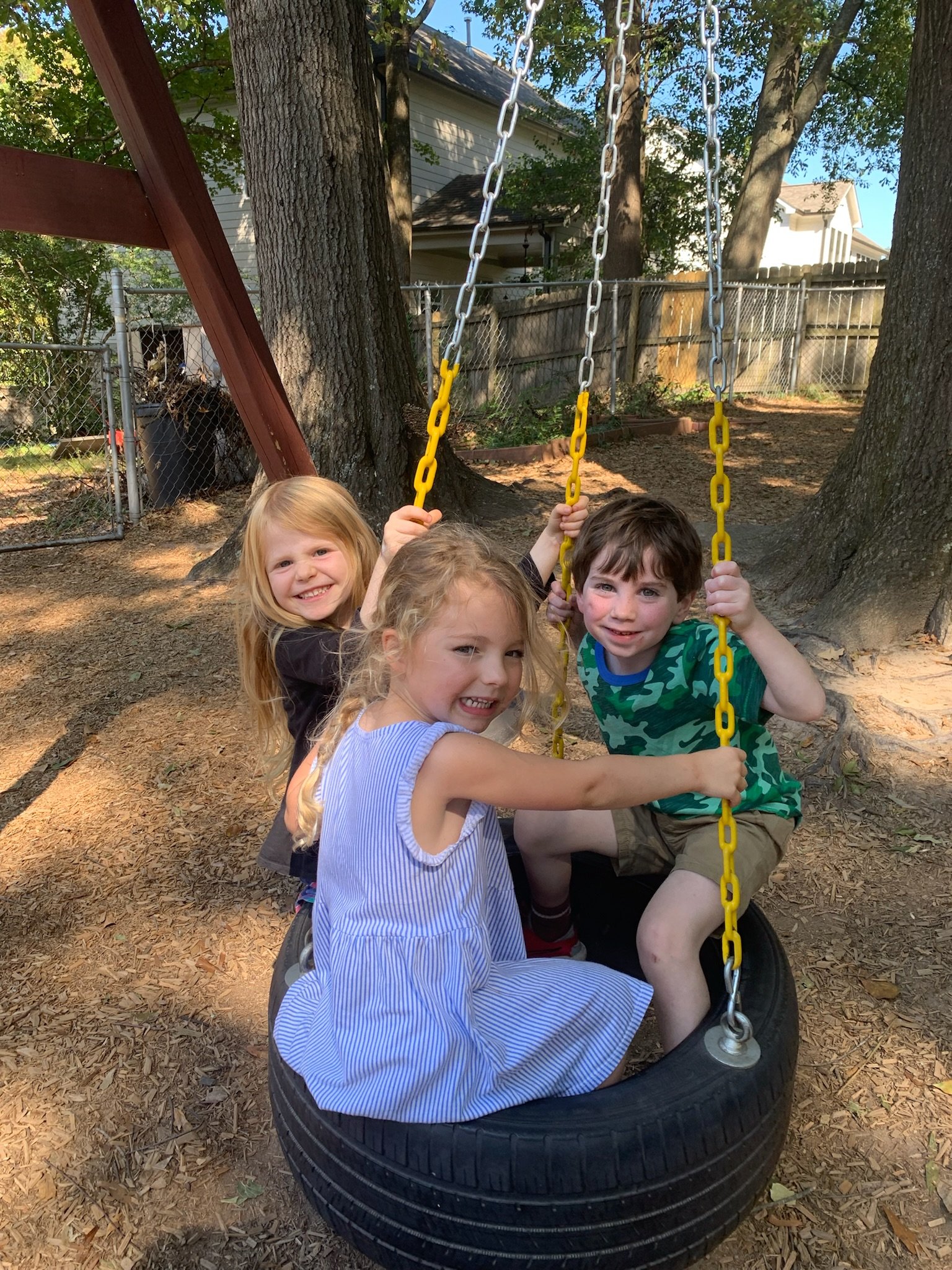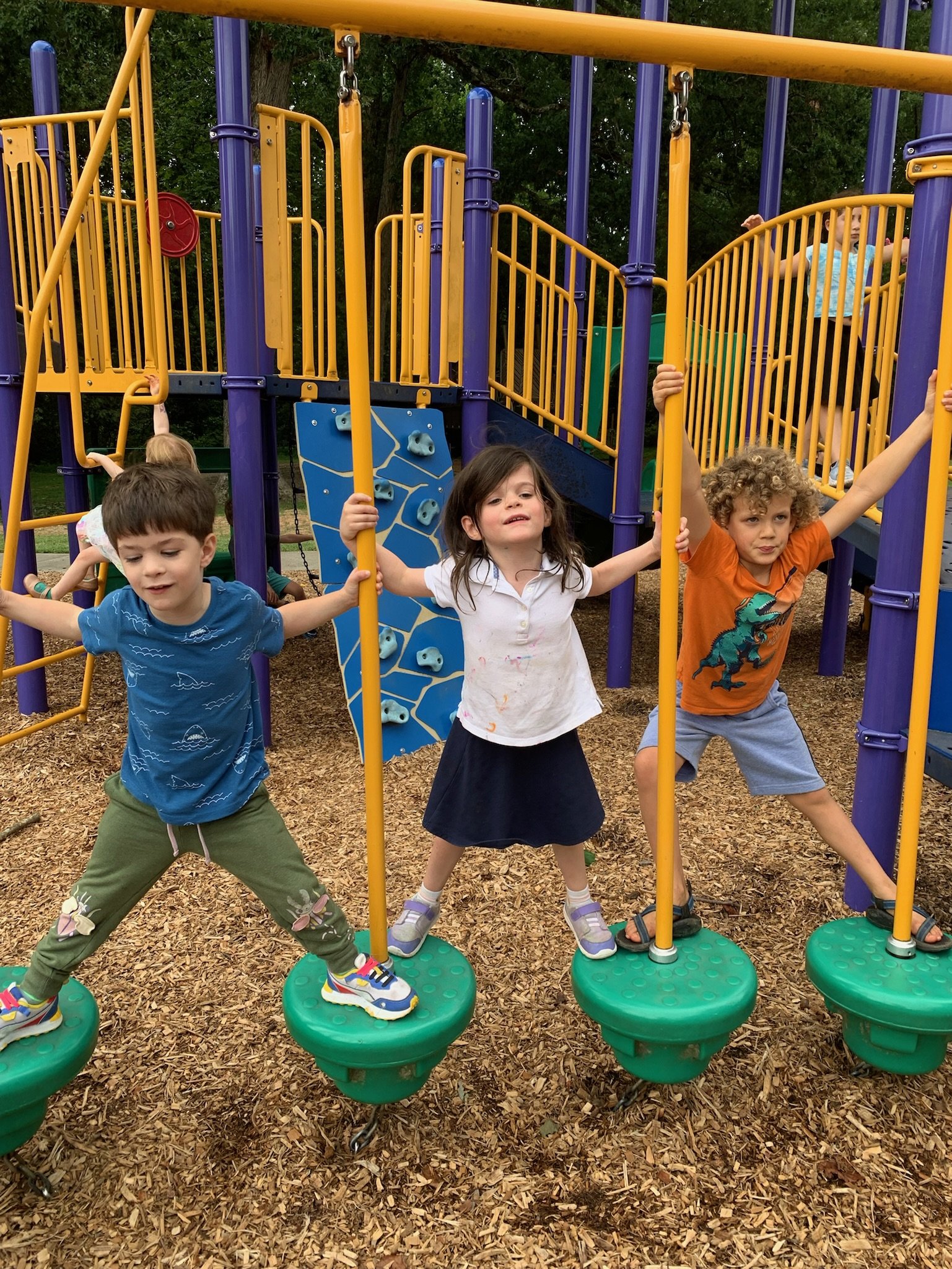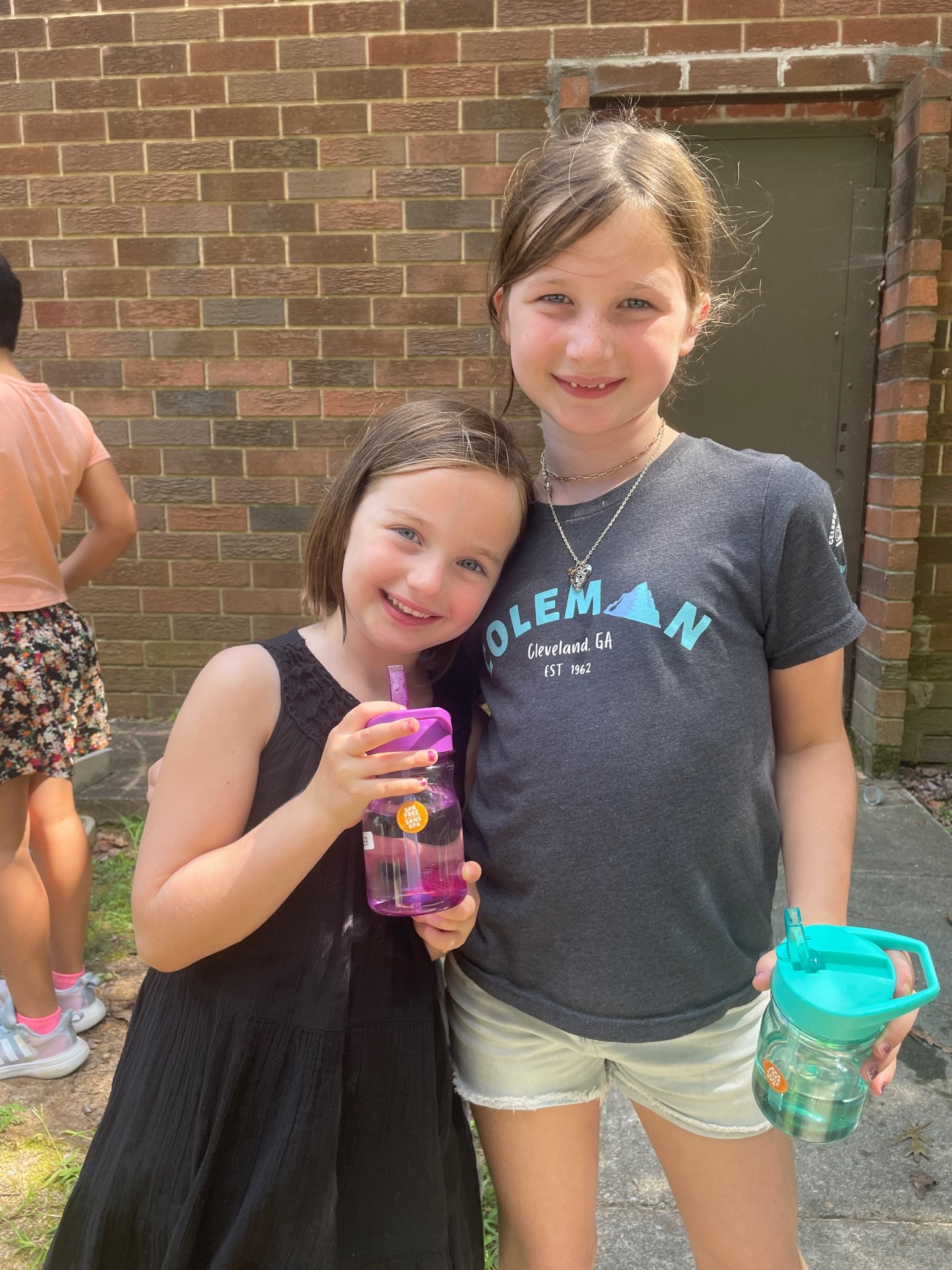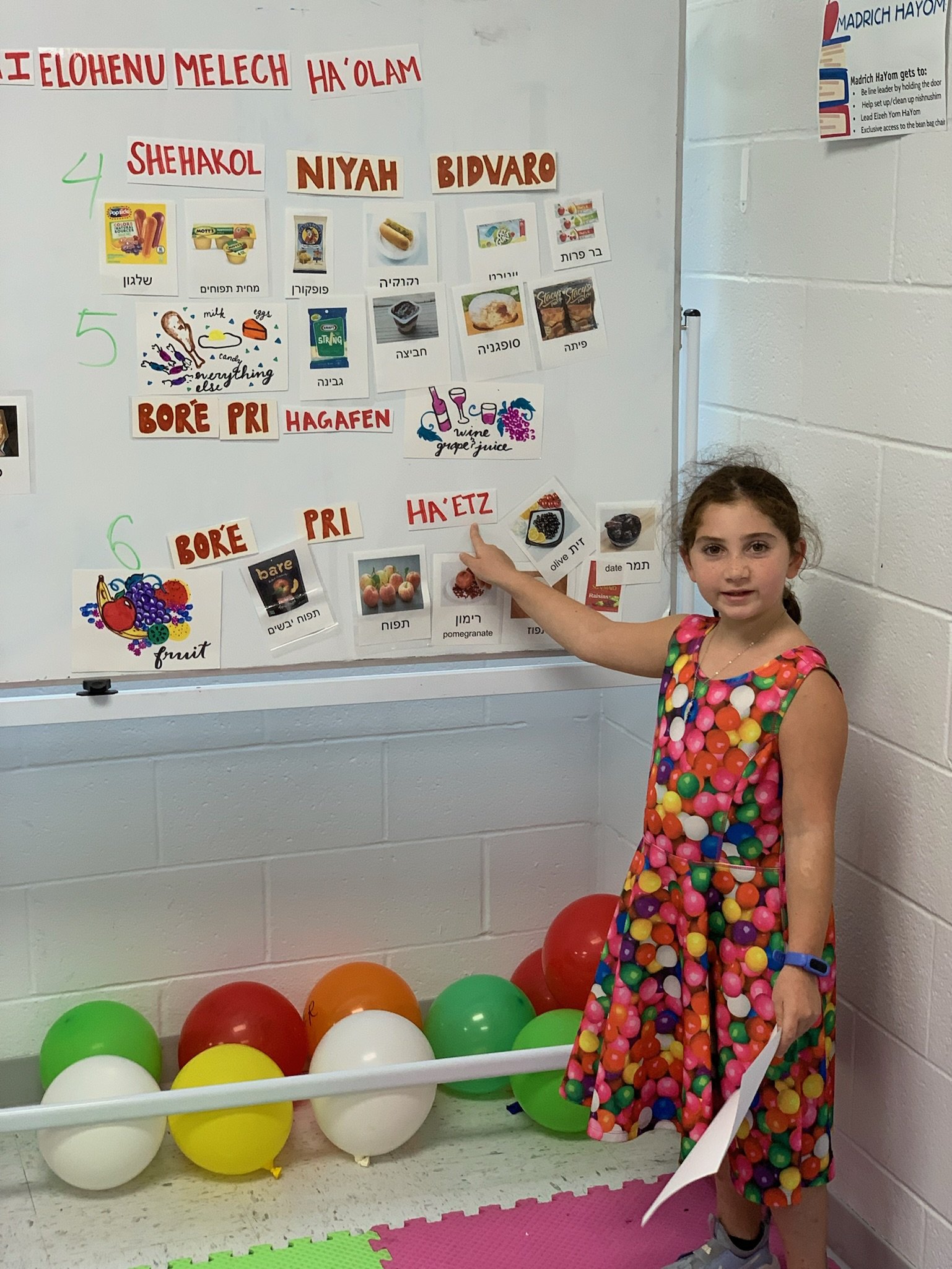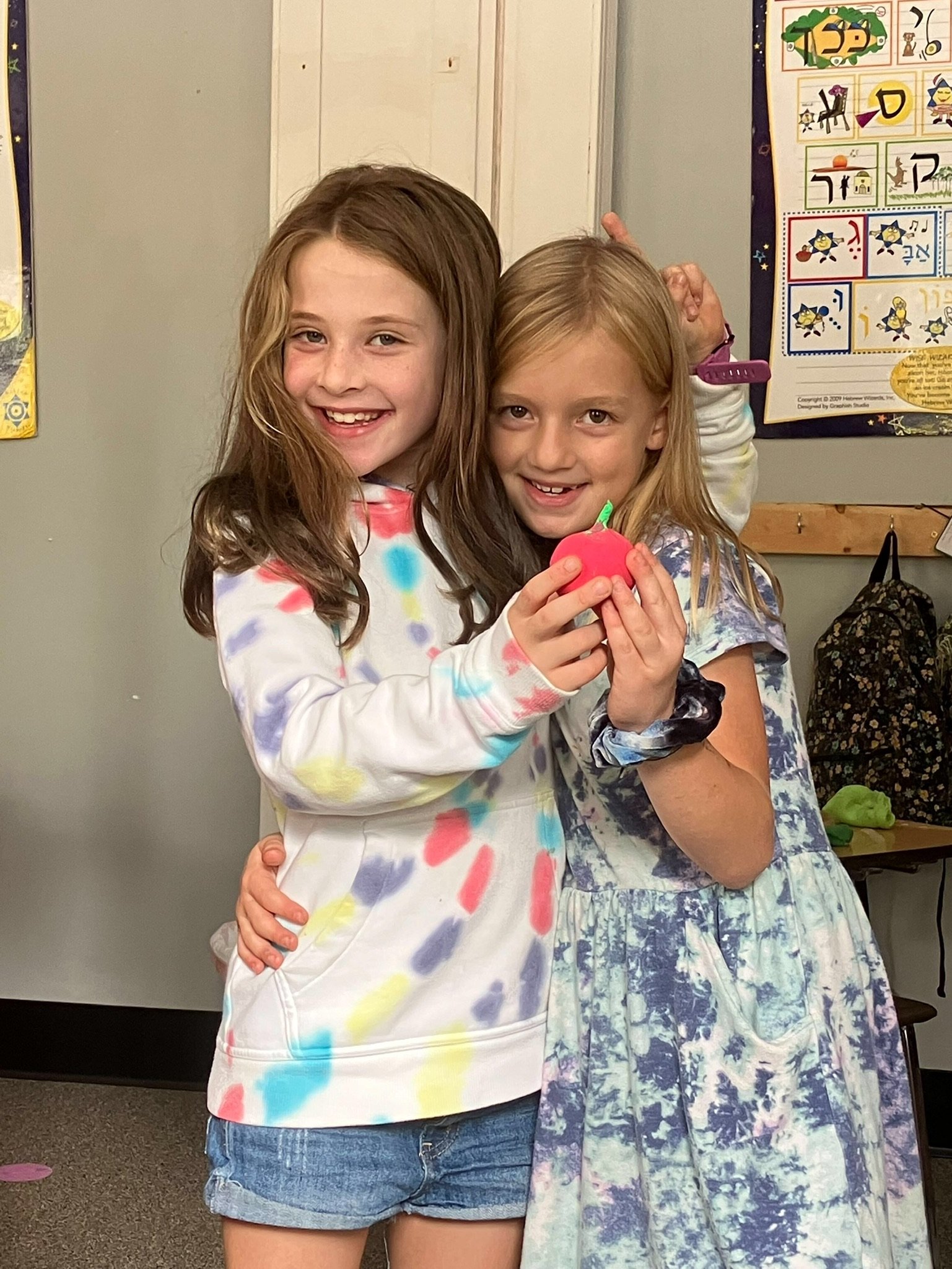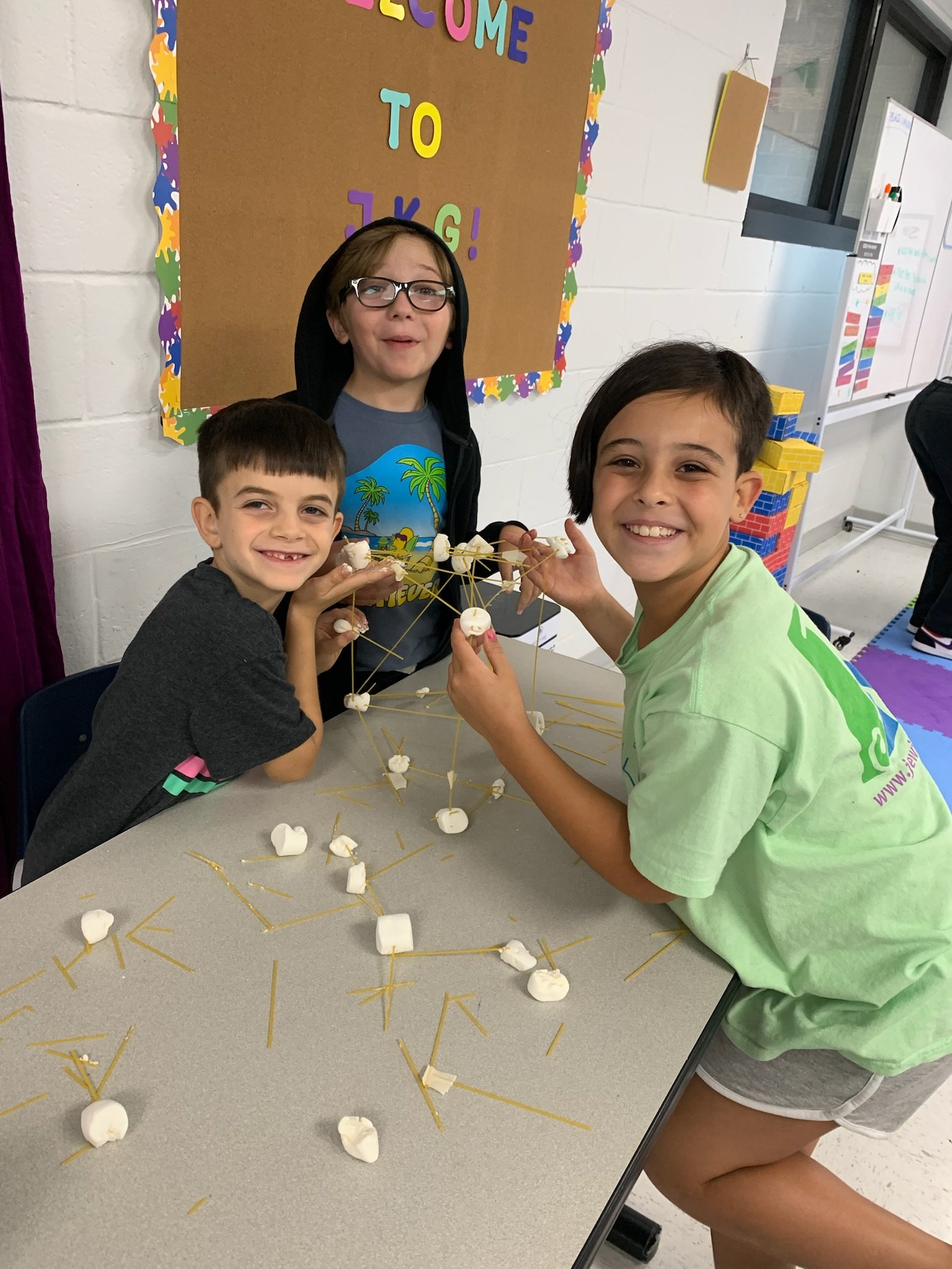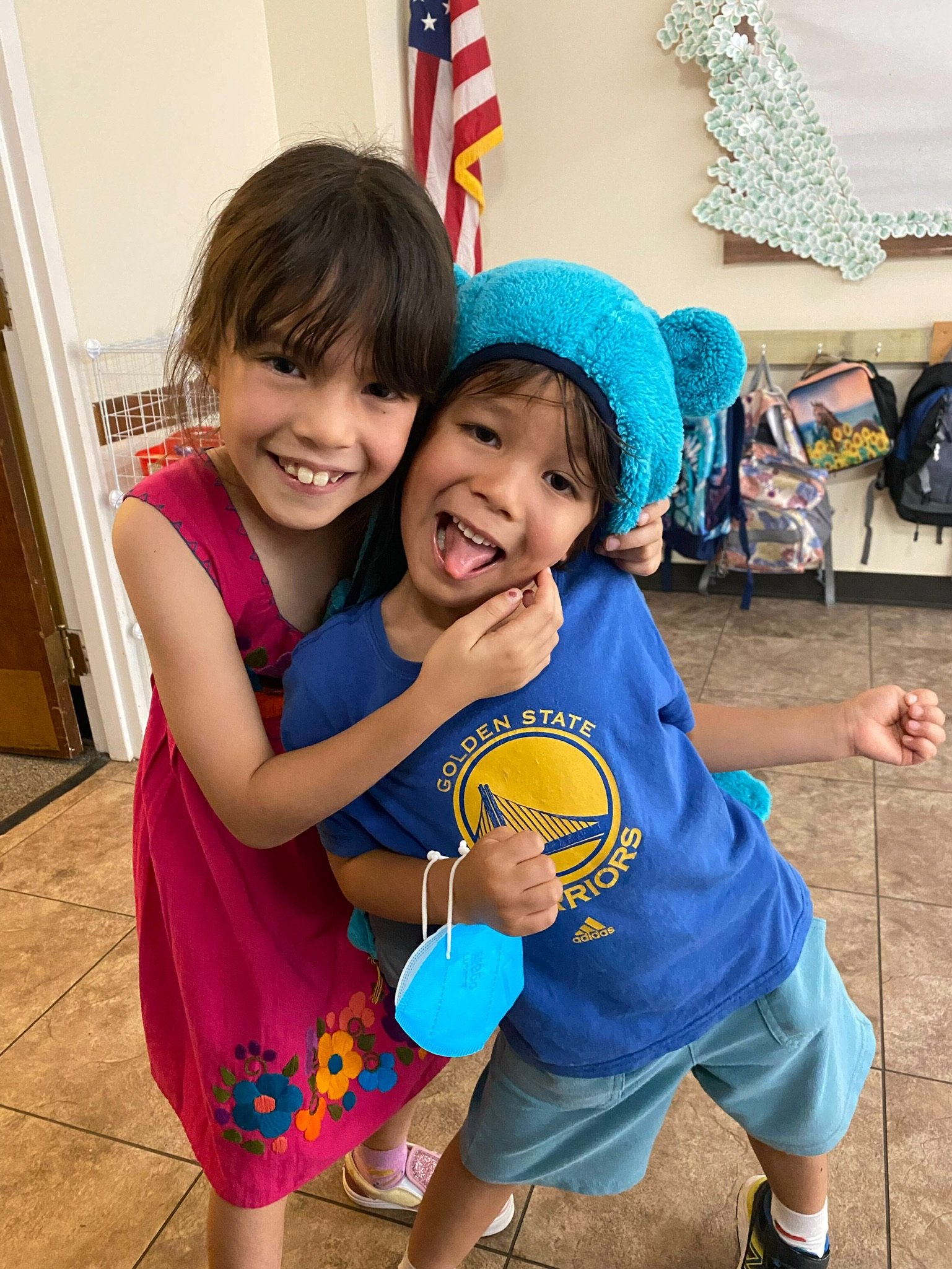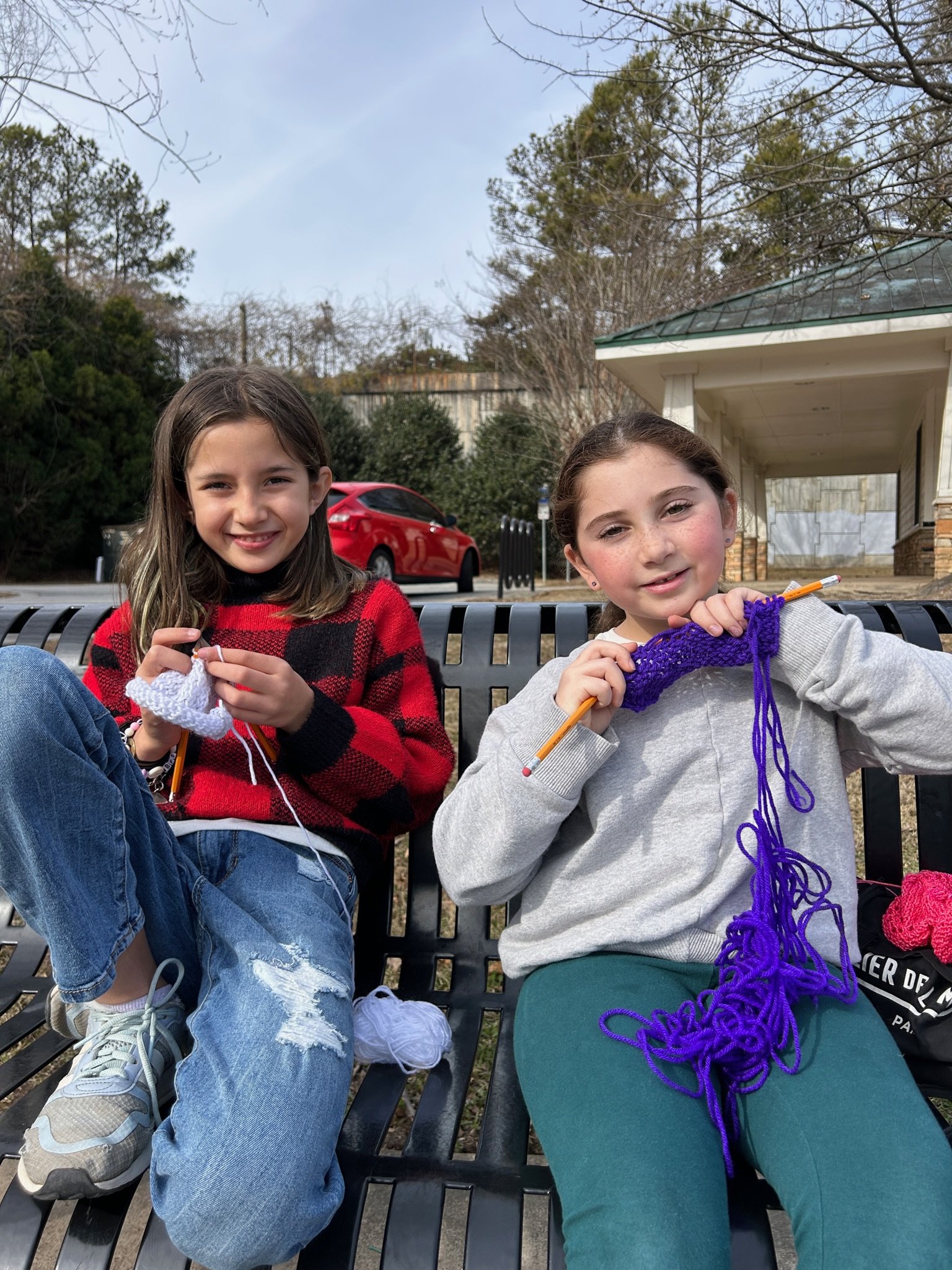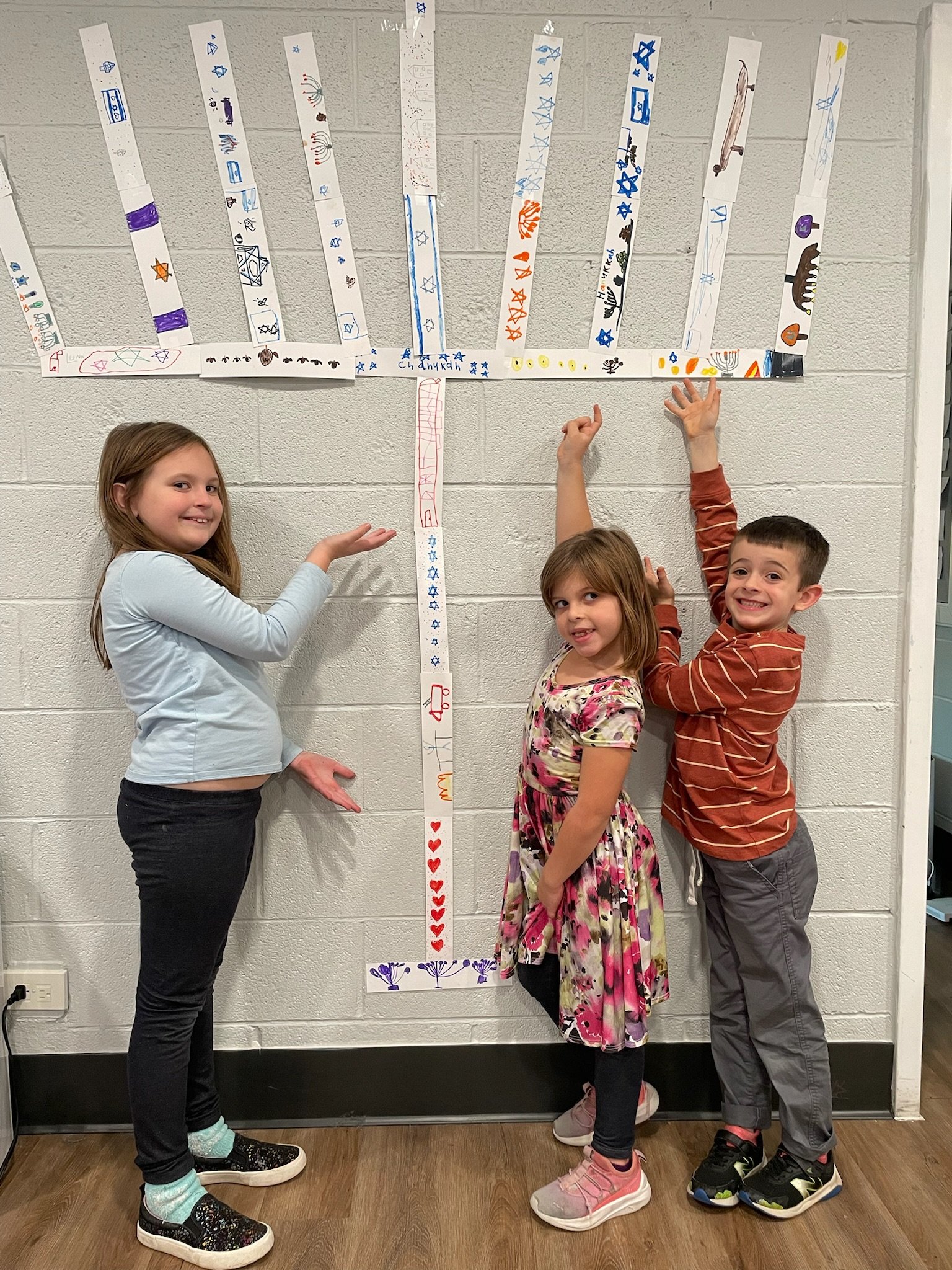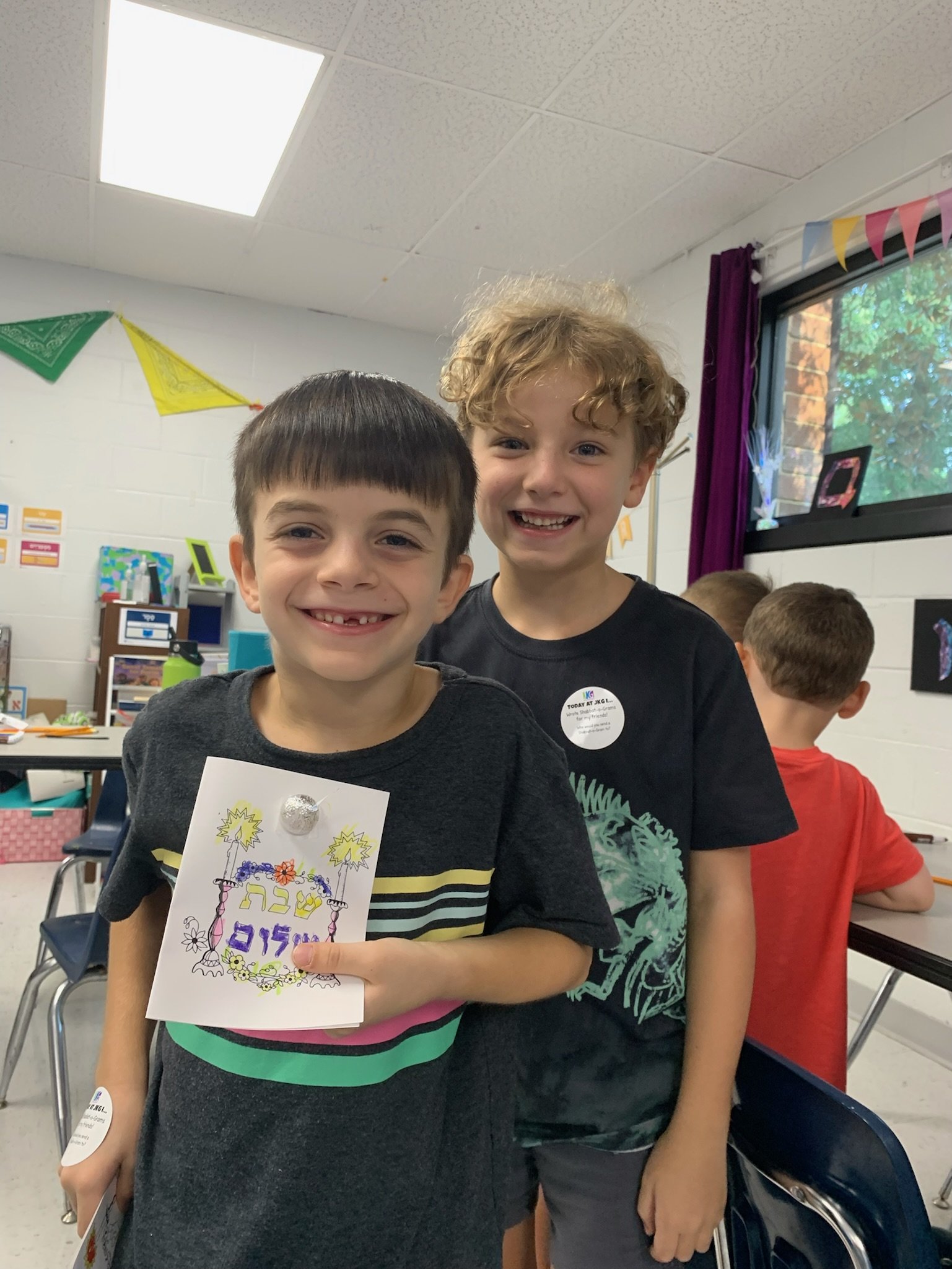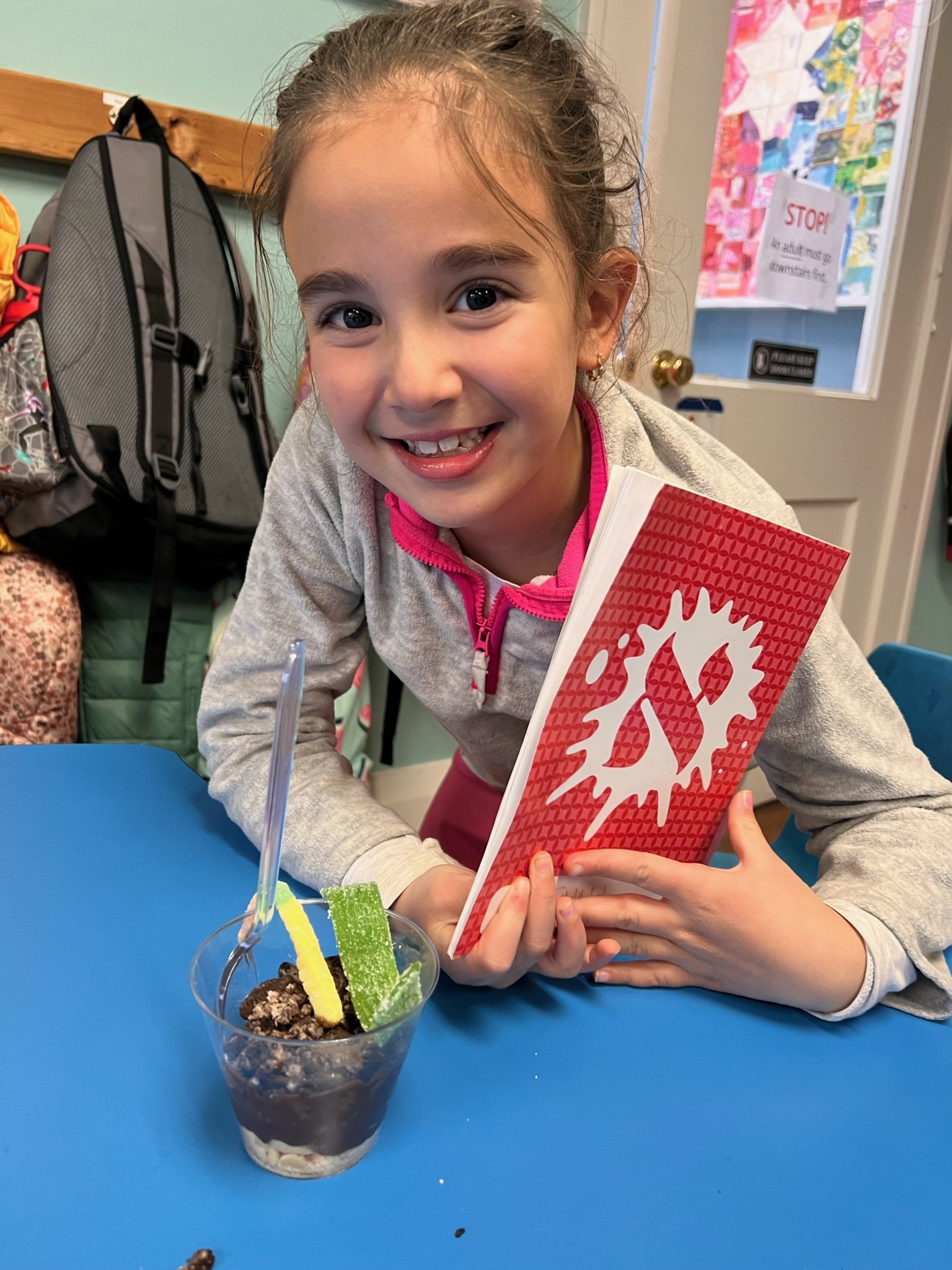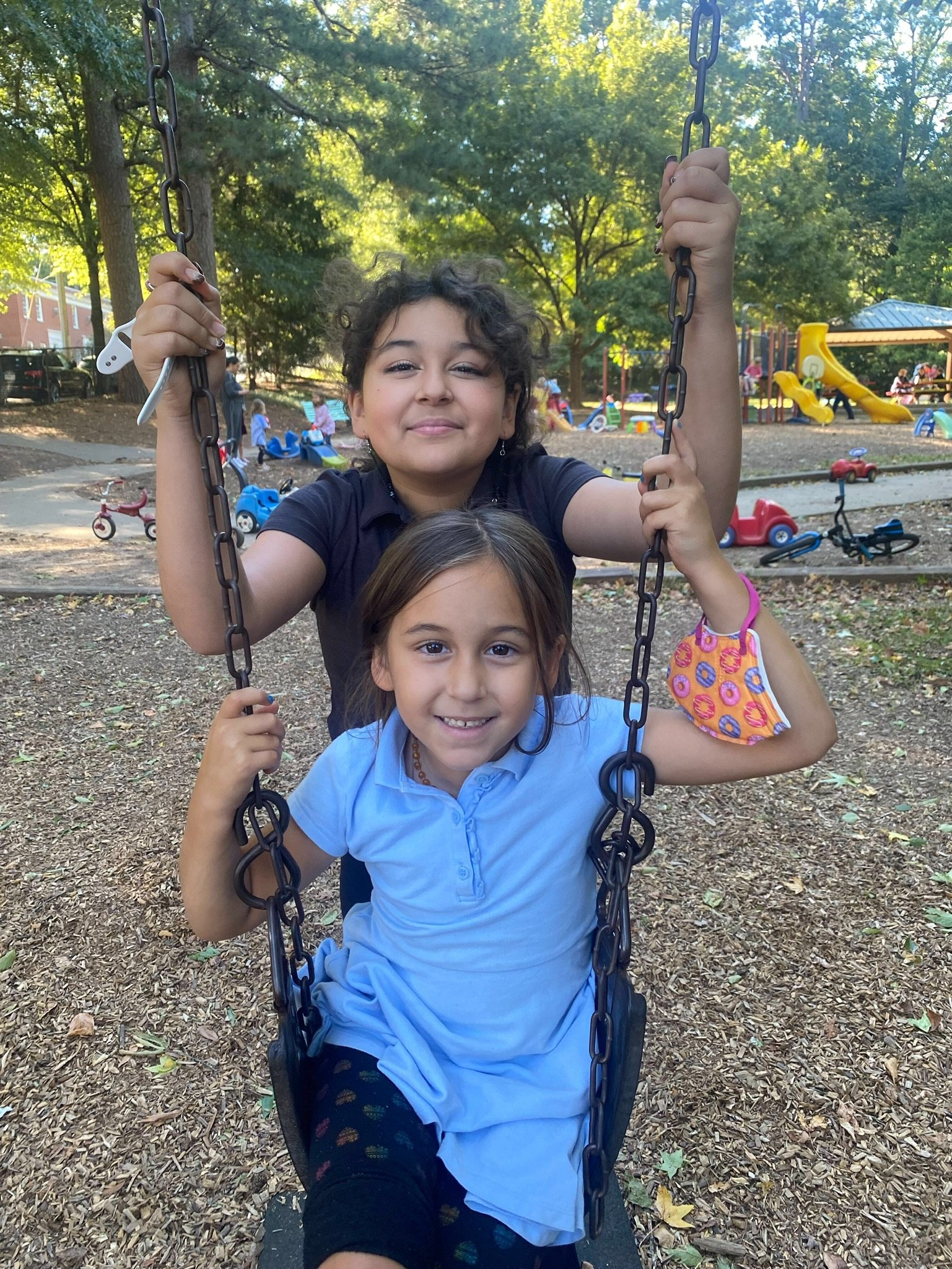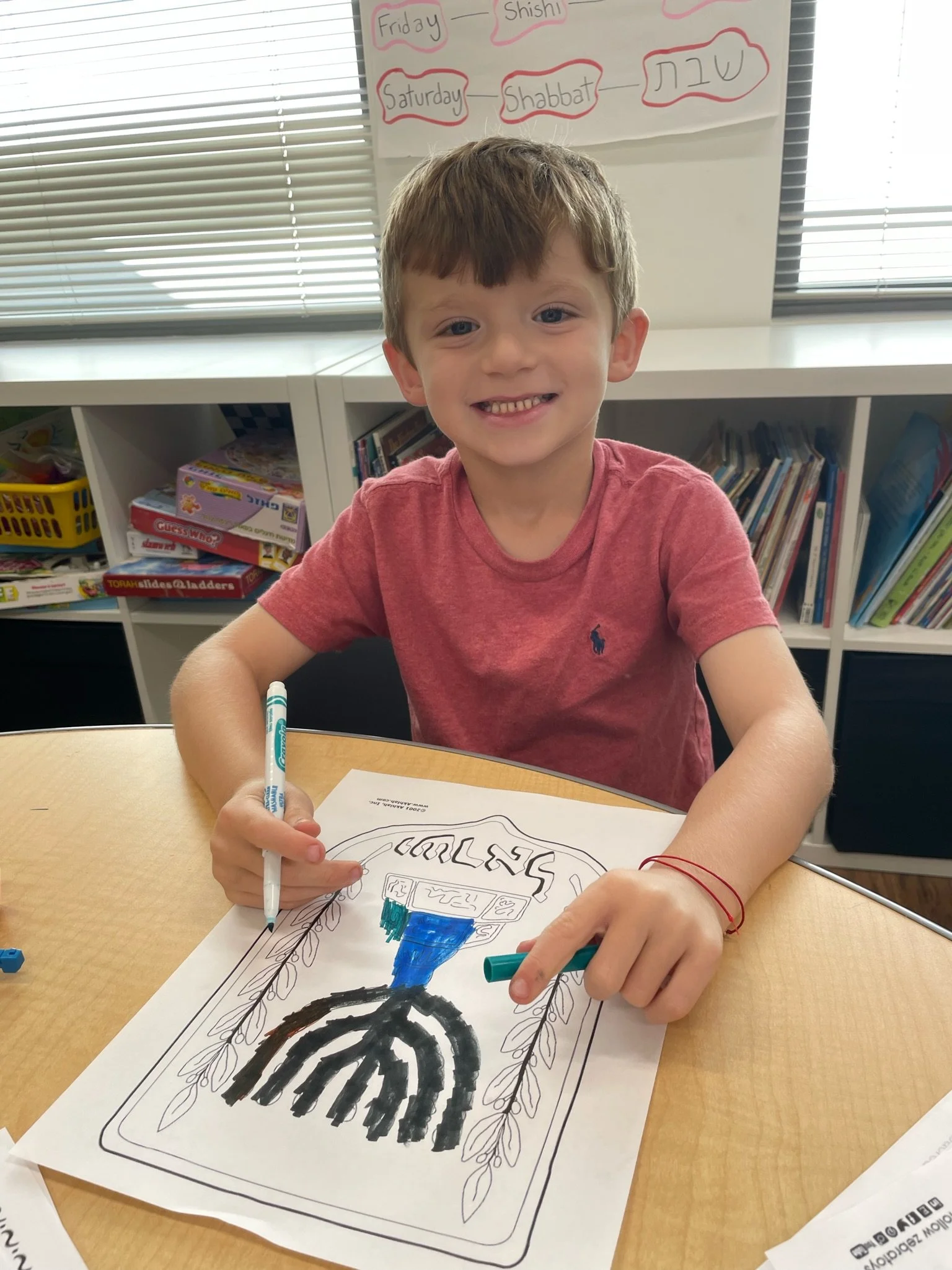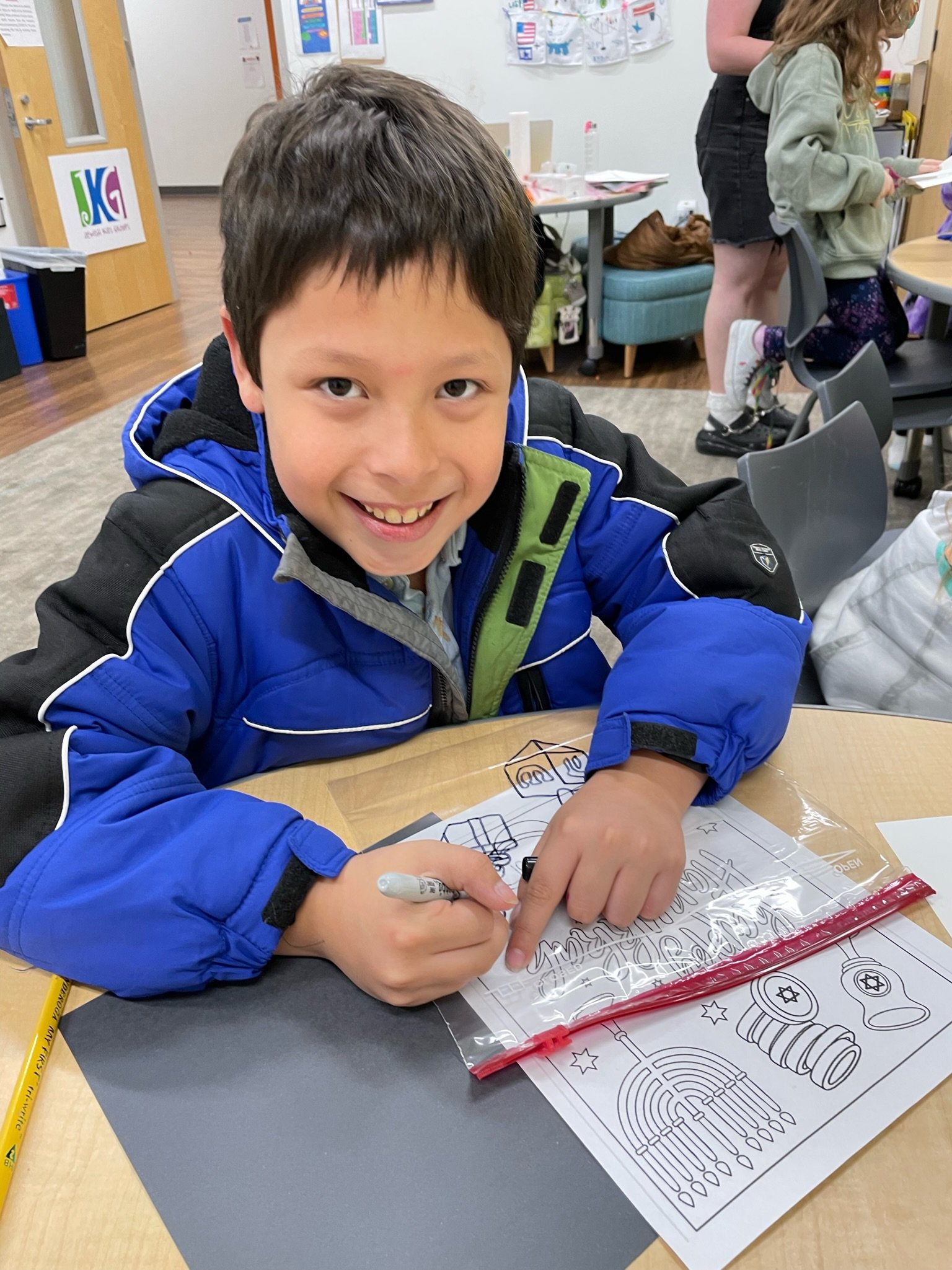JKG Afternoon Community Curriculum
JKG Afternoon Community provides a nurturing space where children in kindergarten through 5th grade grow intellectually, spiritually, and socially. Through an engaging, values-driven curriculum, we help students connect with their Jewish heritage, explore their creativity, and build lifelong friendships in a vibrant, inclusive environment.
The Three Challah Strands
The JKG Afternoon Community core curriculum is woven from three equally vital strands, forming a rich and dynamic “curricular challah” that runs through every aspect of our programming.
Strand 1: Jewish Enrichment through Jewish Values
JKG Afternoon Community embraces multiple ways to “do Jewish.” We introduce students to classic traditions as well as modern interpretations, all through the guiding question of “how does Judaism help me explore and understand both the world and myself?” We invite and guide students to discover the values within Jewish practice through conversation and inquiry, and prioritize ongoing curiosity and engagement over rote memorization.
Curricular Units
Each semester at JKG Afternoon Community consists of 10-12 curricular units (listed below) that span 1-2 weeks each (5-10 days worth of content per unit). These units guide our daily peulot (Jewish activities) and other elements of the day.
Fall Semester Units
Kehillah (Building Community)
Shabbat and Havdalah
Hebrew Calendar
Rosh HaShanah
Yom Kippur
Sukkot & Simchat Torah
Torah and Parashat HaShavua
Brachot
Jews Around the World
Chanukkah
Spring Semester Units
Courage to Question
Mitzvah and Tzedakah
Tu Bishvat and Tikkun Olam
Jewish Disabilities Awareness and Inclusion
Purim
L’Dor VaDor: From Generation to Generation
Passover
Counting the Omer
Israel: Now and Then
Shavuot
Jewish Value Lenses
Students experience the curricular units through the lens of a different Jewish value each year, so they learn something different each time around without lesson repetition over six years. The values, listed below, are inspired by Making Mensches: A Periodic Table, originally adapted by Rabbi Avi Orlow at Foundation for Jewish Camp.
Year 1: Do the Right Thing דֶּרֶךְ אֶרֶץ (Derech Eretz) - Kindness, Teamwork, Patience, Respect, Responsibility, Honesty
Year 2: Justice צֶדֶק (Tzedek) - Equality, Compassionate Correction, Repair the World, Perseverance, Community, Peace
Year 3: Balance רוֹדֵף שָׁלוֹם (Rodeph Shalom) - Calm and Composure, Patience, Forgiveness, Contentment, Humility, Modesty, Inner Beauty
Year 4: Wonder יִרְאָה (Yeerah)- Reverence and Awe, Joy, Love, Gratitude, Whole and at Peace, Grounded
Year 5: Wisdom חֲכָמָה (Chochmah) - Understanding, Sensibility, Curiosity, Creativity, Machloket, Foresight
Year 6: Courage אֹמֶץ לֵב (Ometz Lev) - Zest and Zeal, Confidence, Will Power, Conviction, Perseverance and Grit, Integrity
A student who starts JKG in kindergarten and attends through 5th grade will experience each curricular unit through six different value lenses. A child who joins JKG in 3rd grade will engage meaningfully with the core content through three value lenses. All students learn no matter the start date and students who attend multiple years deepen their knowledge with each value lens.
Here is an example of how JKG teaches the Passover unit through the six value lenses:
Israel Education
Jewish Kids Groups connects students with Israel through Am (peoplehood), Eretz (land), and Medinah (state). Jewish Kids Groups believes in Israel’s right to exist as a Jewish and Democratic state in our ancestral homeland.
JKG weaves Israel throughout the entirety of our curriculum, rather than solely in stand-alone units to unfold Israel’s inseparable historic and present connections to Judaism. Students are exposed to Israel’s ancestral connection to Judaism, biblical narratives, founding historical figures, modern innovations, culture, population diversity (Jewish, Bedouin, Druze, Arab Christian, Muslim, Bahai, etc), and Hebrew language. We also teach the values of peoplehood, pluralism, pursuing justice, cultivating curiosity, and respecting diversity and multiple narratives.
JKG partners with the Jewish Federation’s Shinshinim program to welcome Israeli high school graduates into the JKG community so students can develop relationships with them and learn from their lived experiences.
Strand 2: Hebrew Language
JKG teaches Hebrew not just as a language, but also as a living bridge to Jewish culture, rituals, and holidays. We bring Hebrew to life and help students engage with it meaningfully in both traditional and modern contexts.
Daily Ivrit (Hebrew)
JKG utilizes the Aleph Champ curriculum, which allows students to grow their Hebrew language skills at their own pace using color-coded levels to evaluate their decoding and reading skills. The curriculum includes age-appropriate workbooks, games, and resources.
Every Ivrit block includes independent reading/workbook practice and group thematic games to practice letters, decoding, and vocabulary.
Hebrew Infusion
JKG includes Hebrew in our everyday language and all over the afternoon community classroom.
Students refer to Hebrew names of activities. Nishnushim is snack. Hafsakah is recess.
Students see Hebrew labels throughout the classroom to identify everyday items. (Shulchan/Table, Shirutim/Bathroom, etc.)
Students refer to JKG teachers as Moreh/ah [teacher first name].
Tefilah (Prayer) and Music
JKG Afternoon Community students practice Hebrew songs and blessings each week with the help of engaging instructional videos. Students love the catchy melodies which become familiar quickly and build deep connections to Jewish rituals.
Strand 3: Relational Community
Relationships are the heart and soul of JKG. In our tight-knit, inclusive community, students learn to care for one another, build friendships, and feel a strong sense of belonging to the Jewish people.
Zman Kehilah (Community Time)
Zman Kehilah is our daily “circle time” when all JKG Afternoon Community students and teachers come together. During this time, students learn the day of the week in Hebrew, discuss upcoming holidays, celebrate birthdays, honor one another through JKG-specific rituals (shout-outs, question-of-the-day, tefillah), and review that day’s topic of learning.
Family Communication
JKG keeps parents up to date on all the things students learn in three main ways:
Weekly Update: This weekly email newsletter summarizes the week’s lessons, includes photos from the week, and includes reminders and special announcements.
Curriculum Folder: The ‘Curriculum for Families’ online folder contains a modified version of the week’s learning objectives, a sample of activities, and links to resources.
Send Home Stickers: JKG students go home wearing stickers that spark conversations between them and their grown-ups about what they did and learned at JKG that afternoon.
Family Shabbat Potlucks, or “Shabbat-Lucks”
JKG’s regular Shabbat potluck family gatherings allow JKG families to celebrate Shabbat together. Parents and siblings connect with one another, deepening the layers of community building and Jewish belonging.



